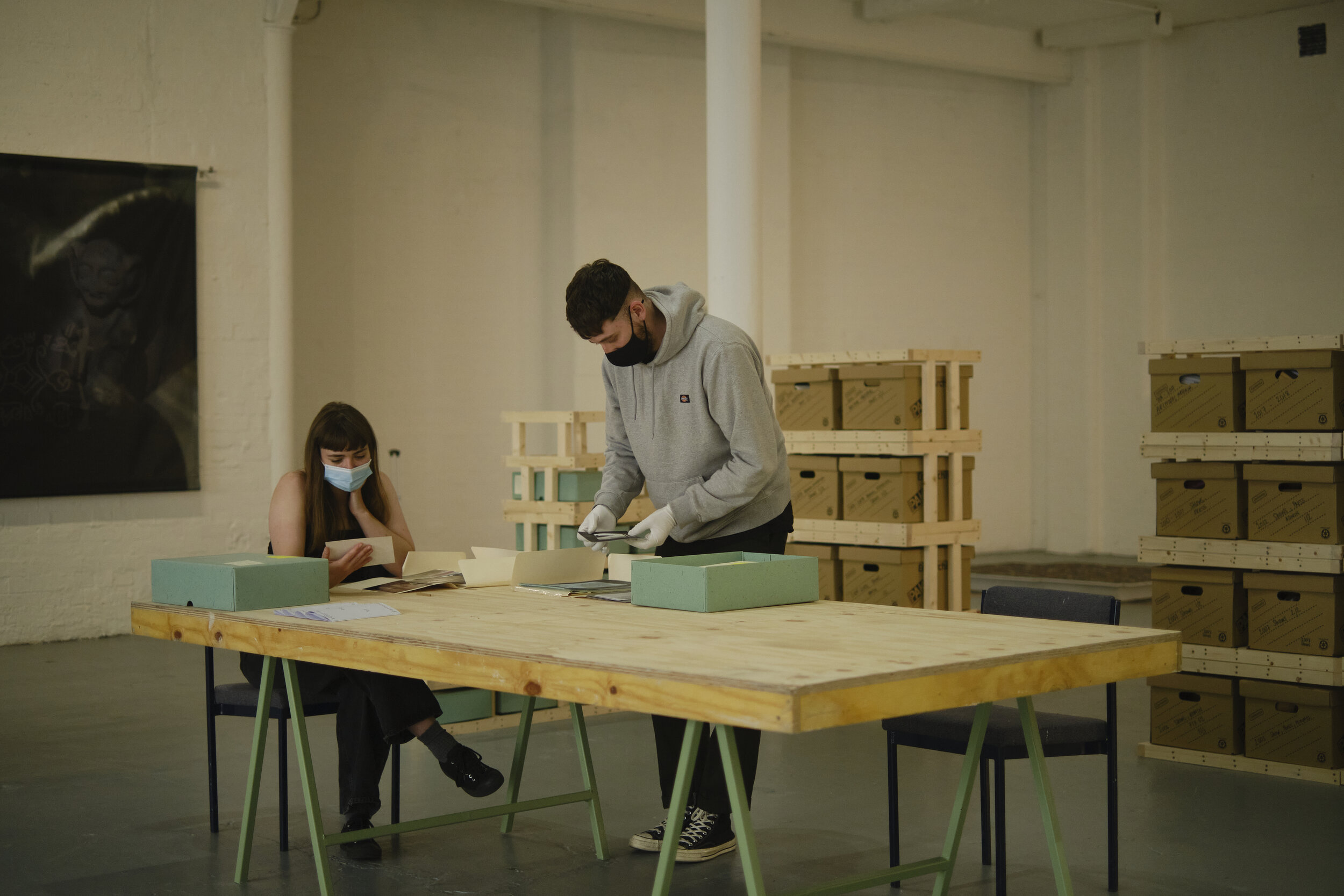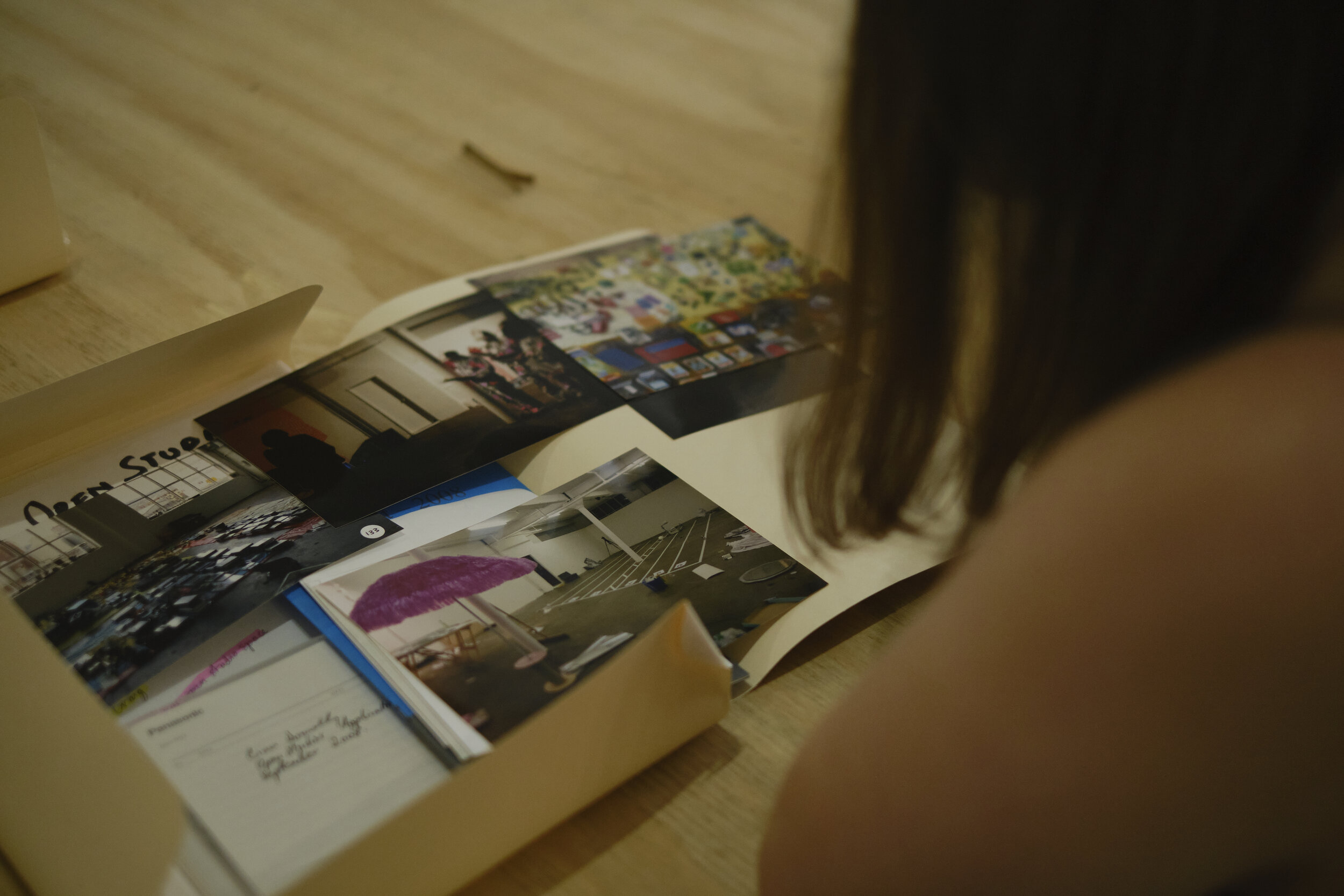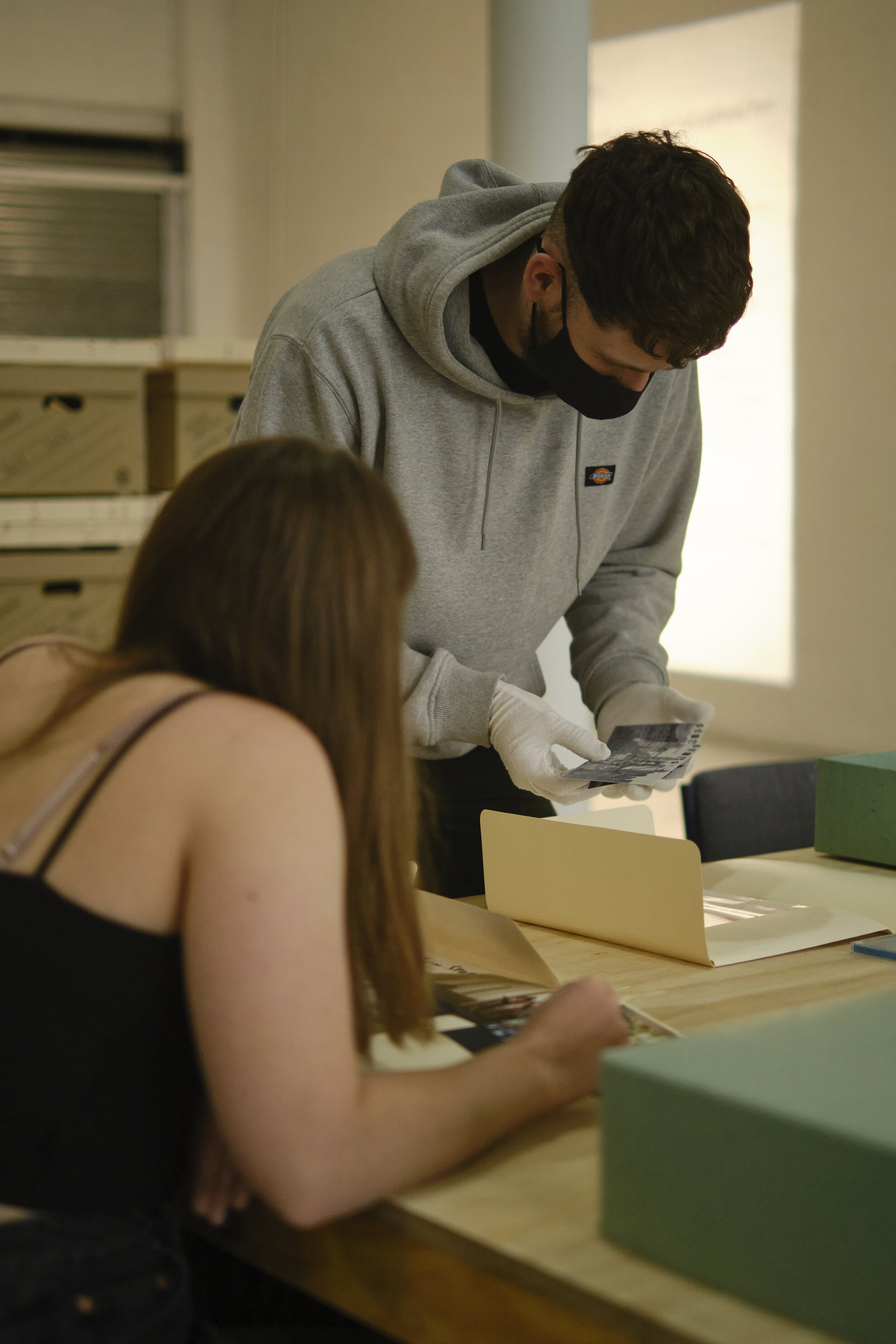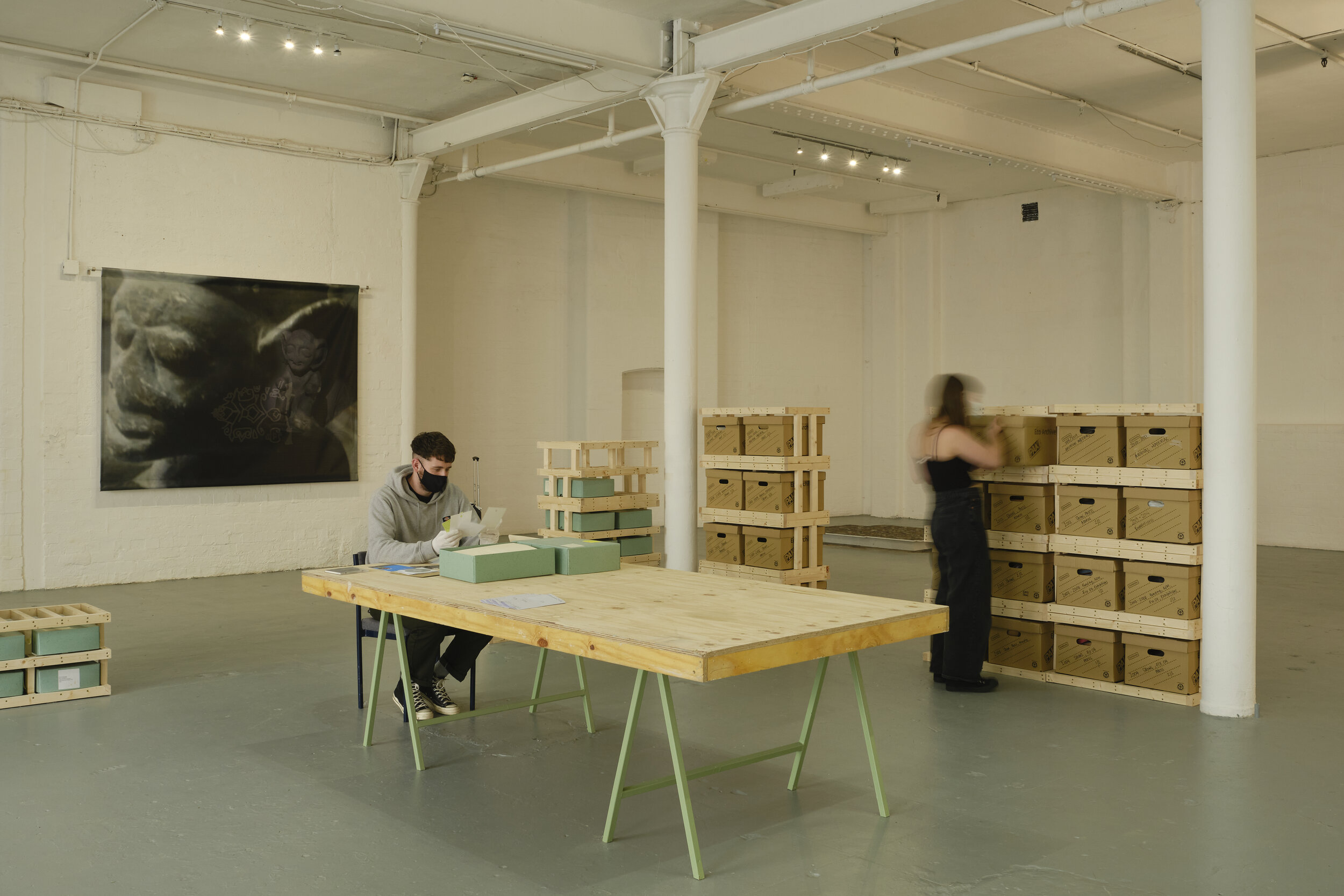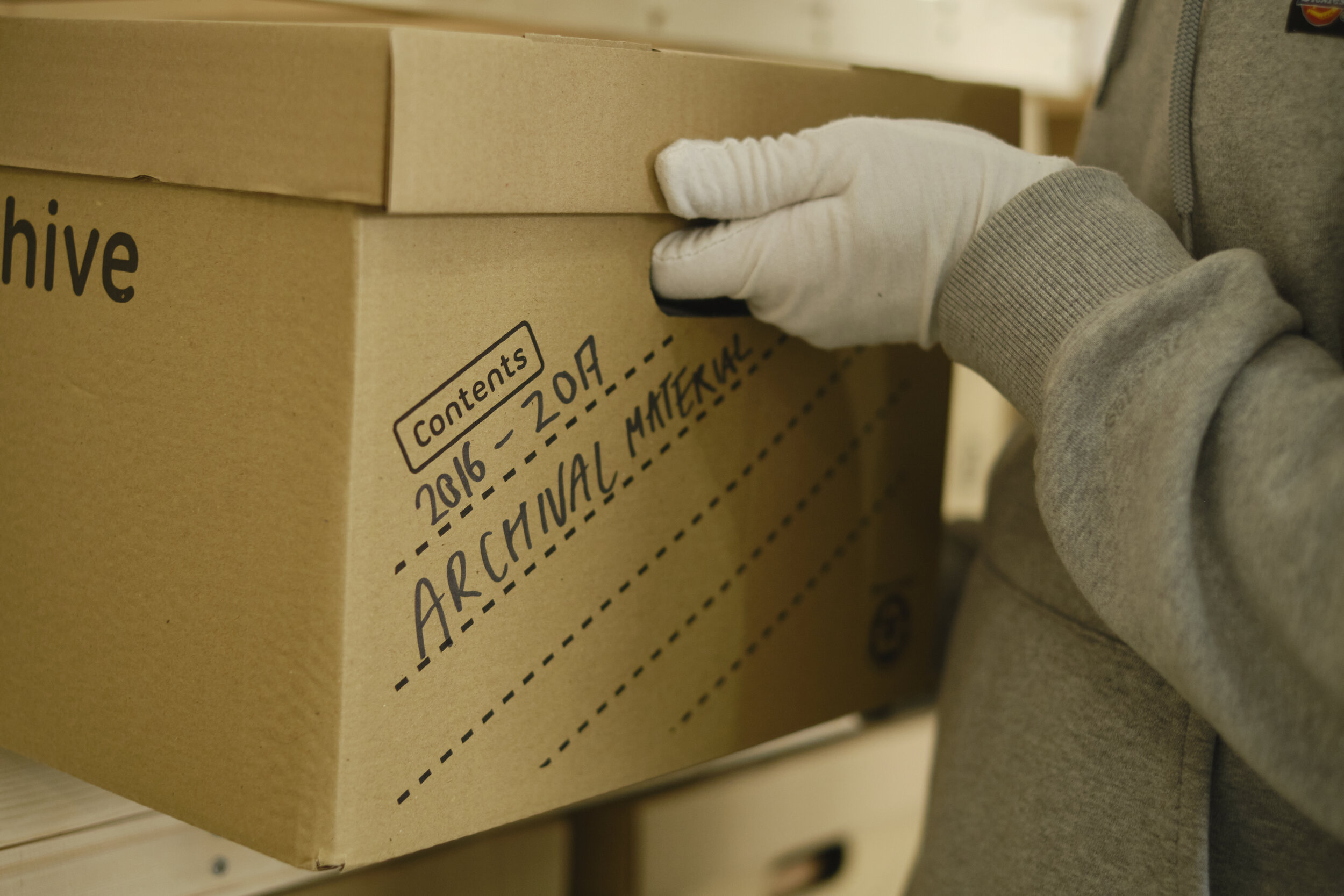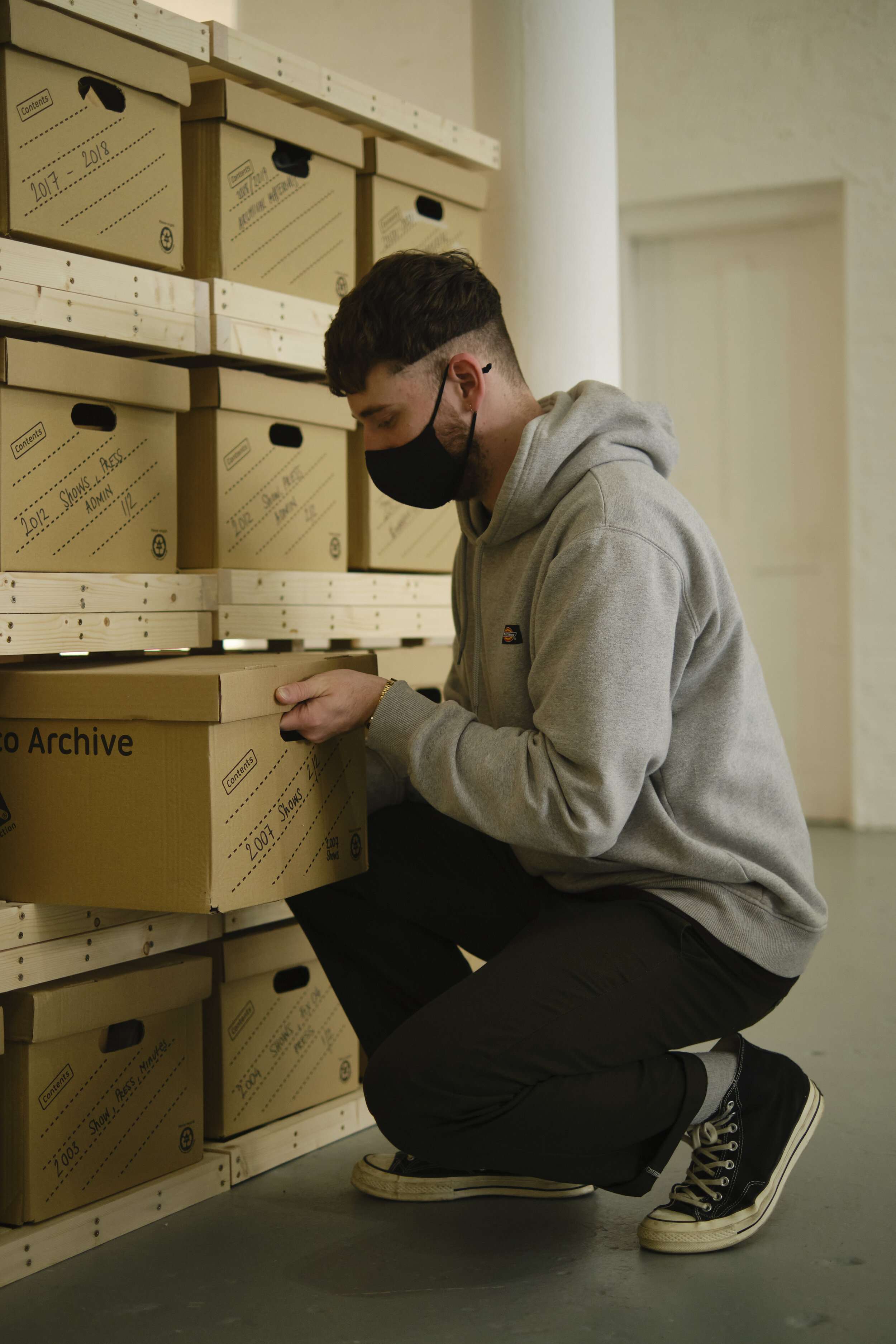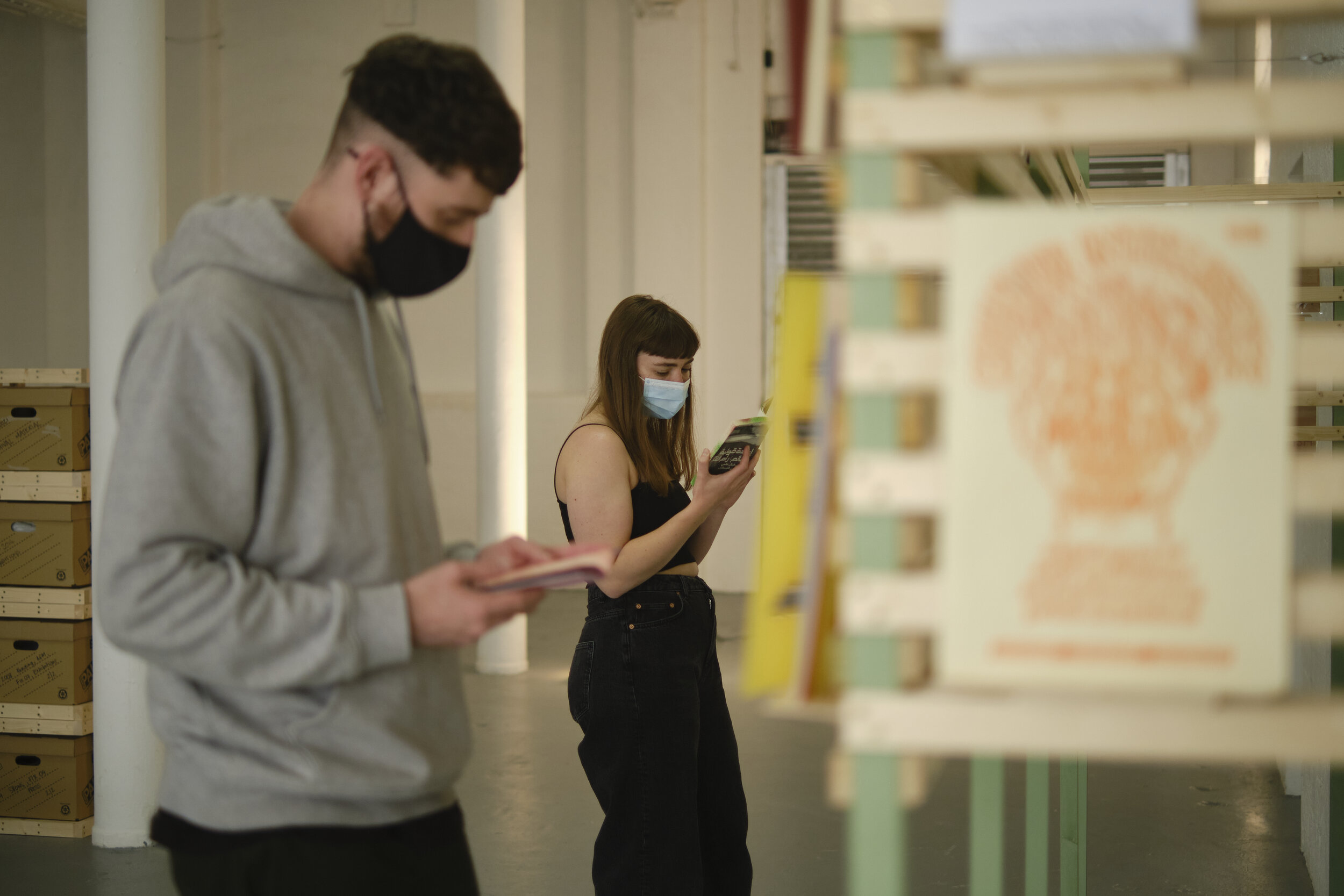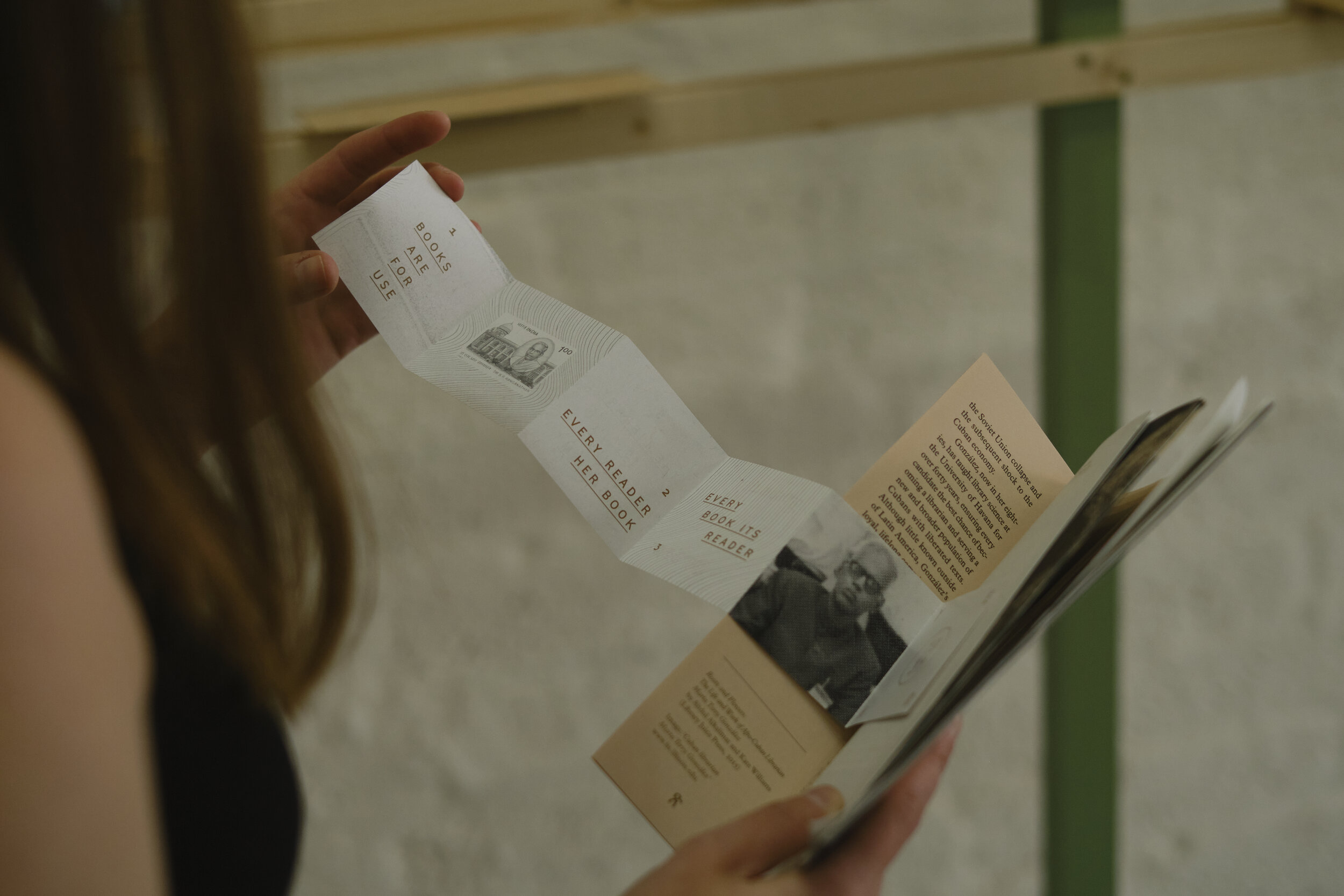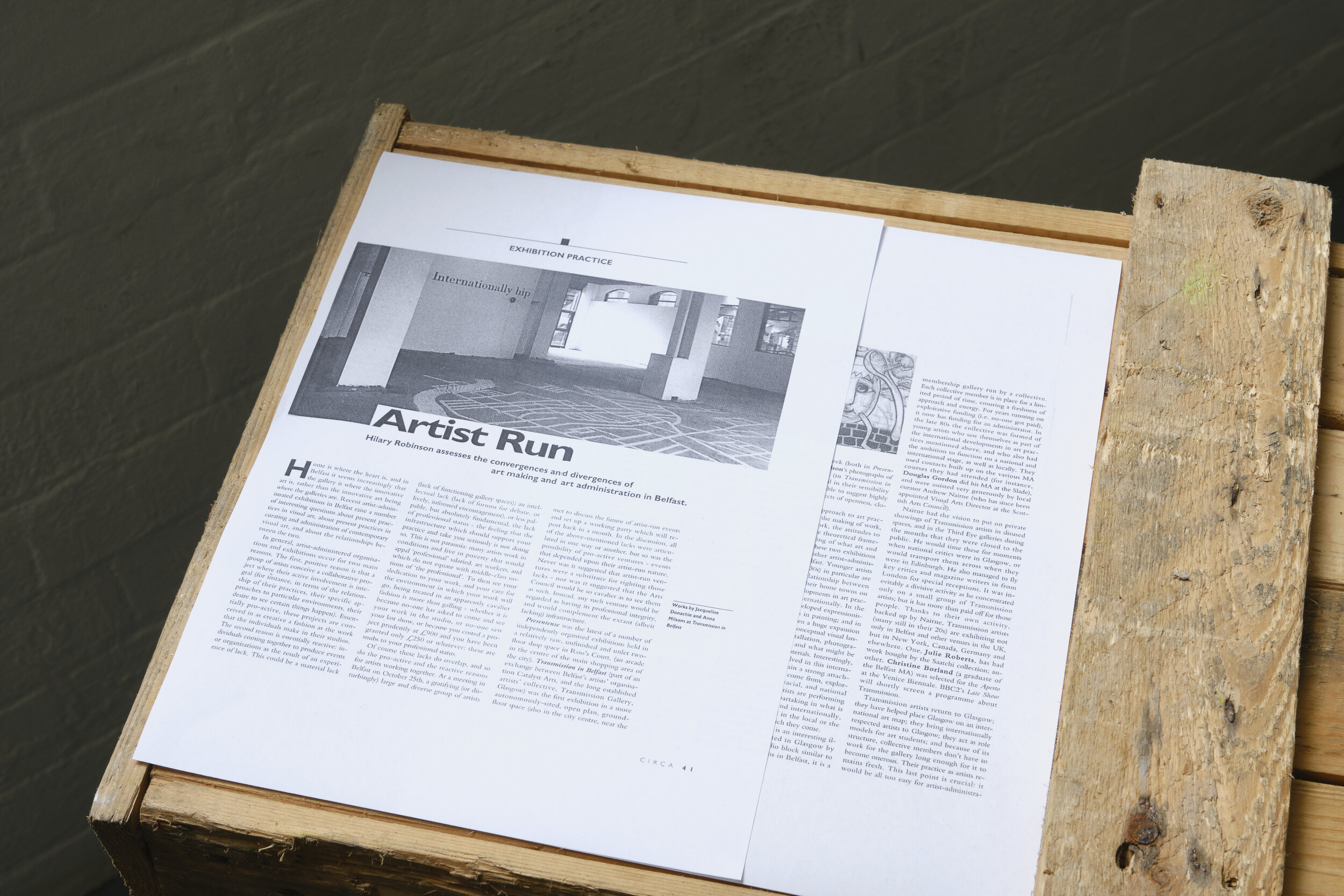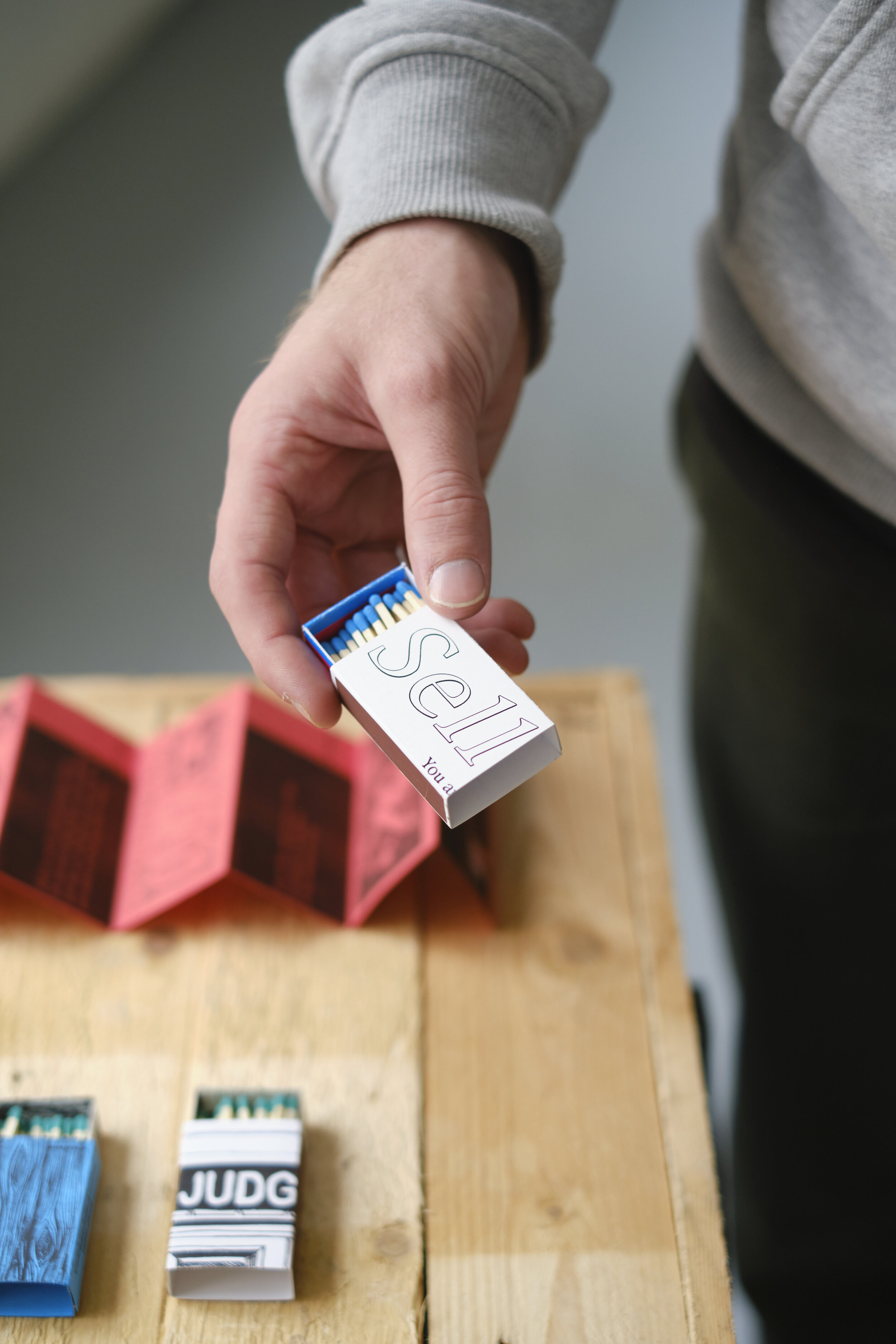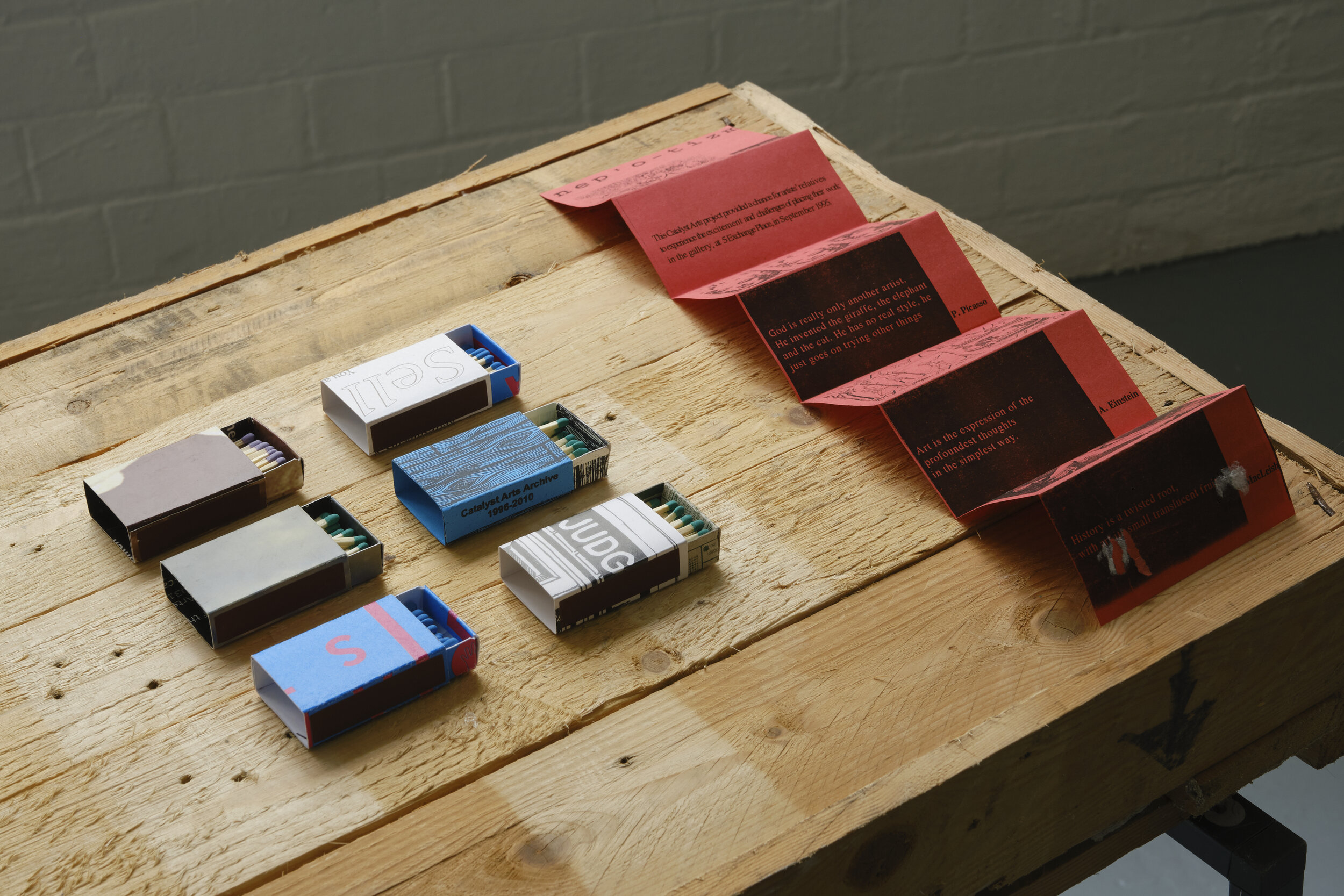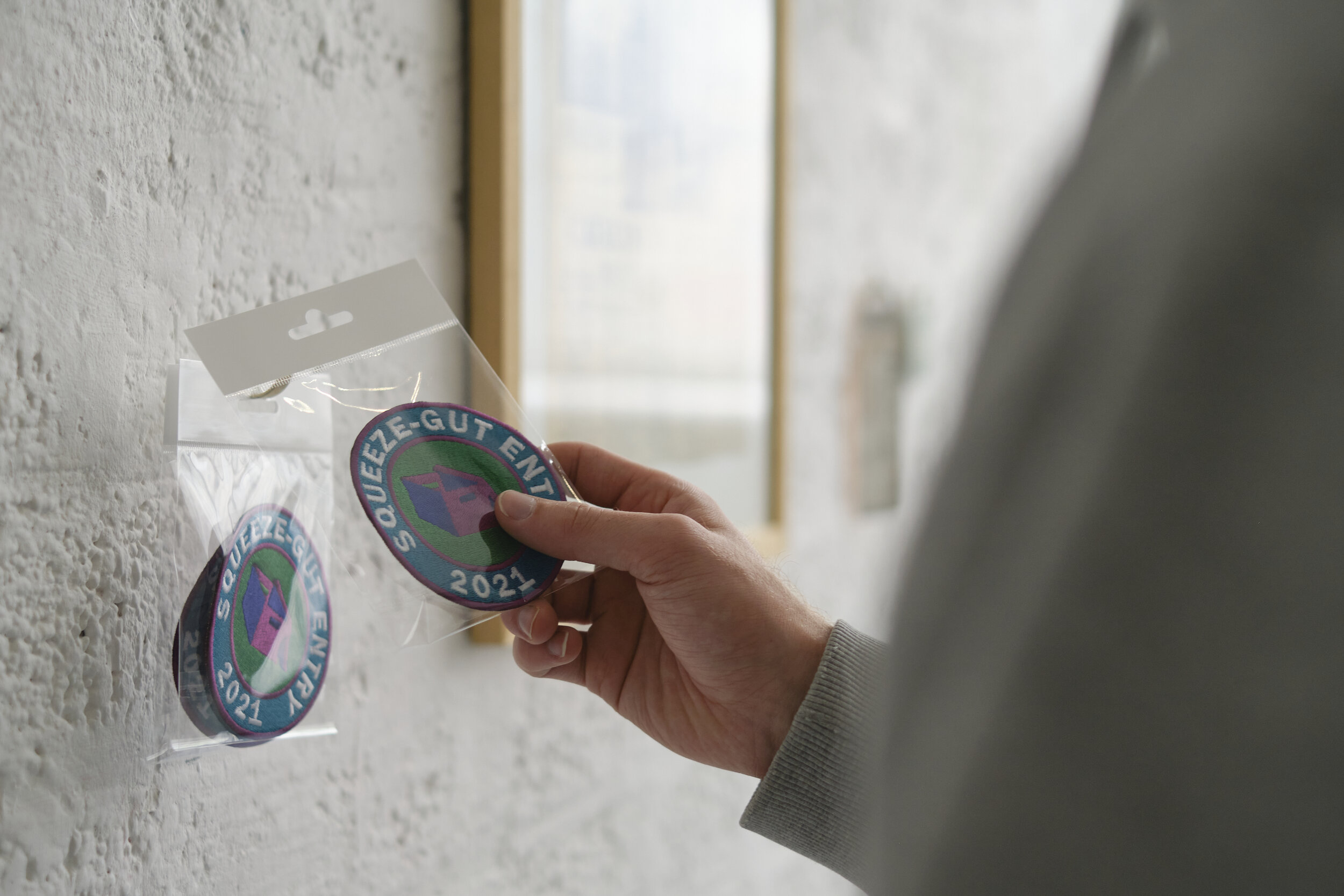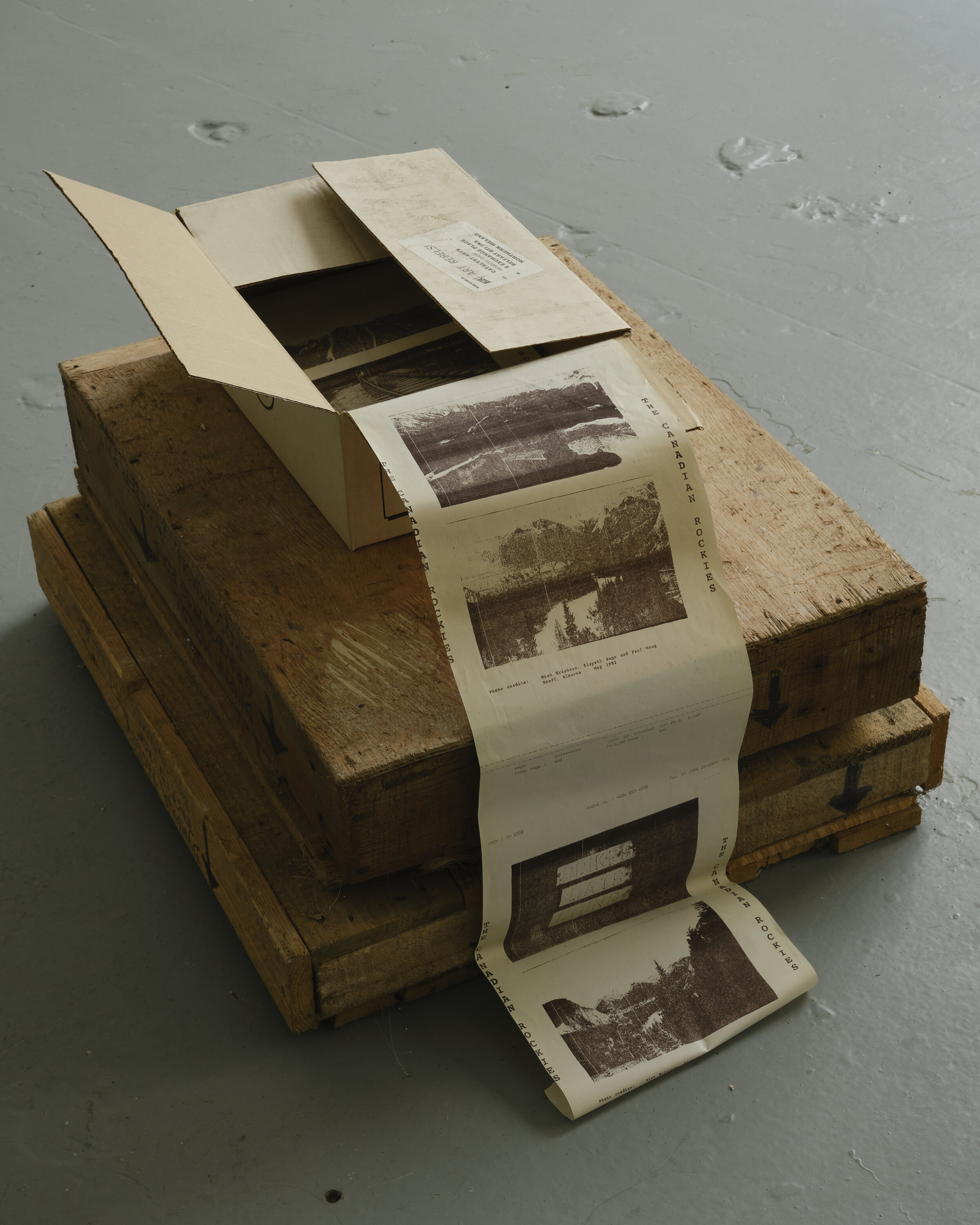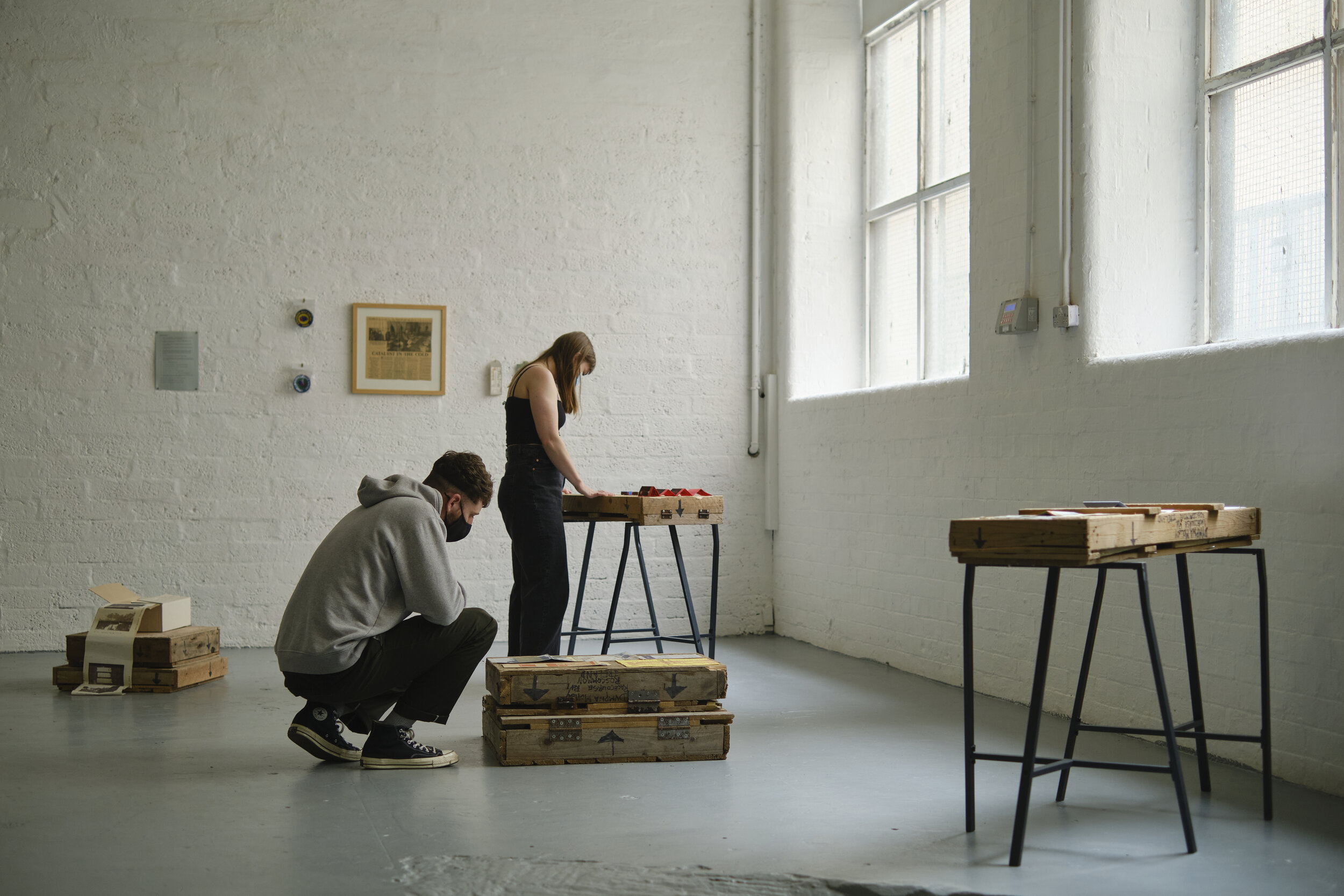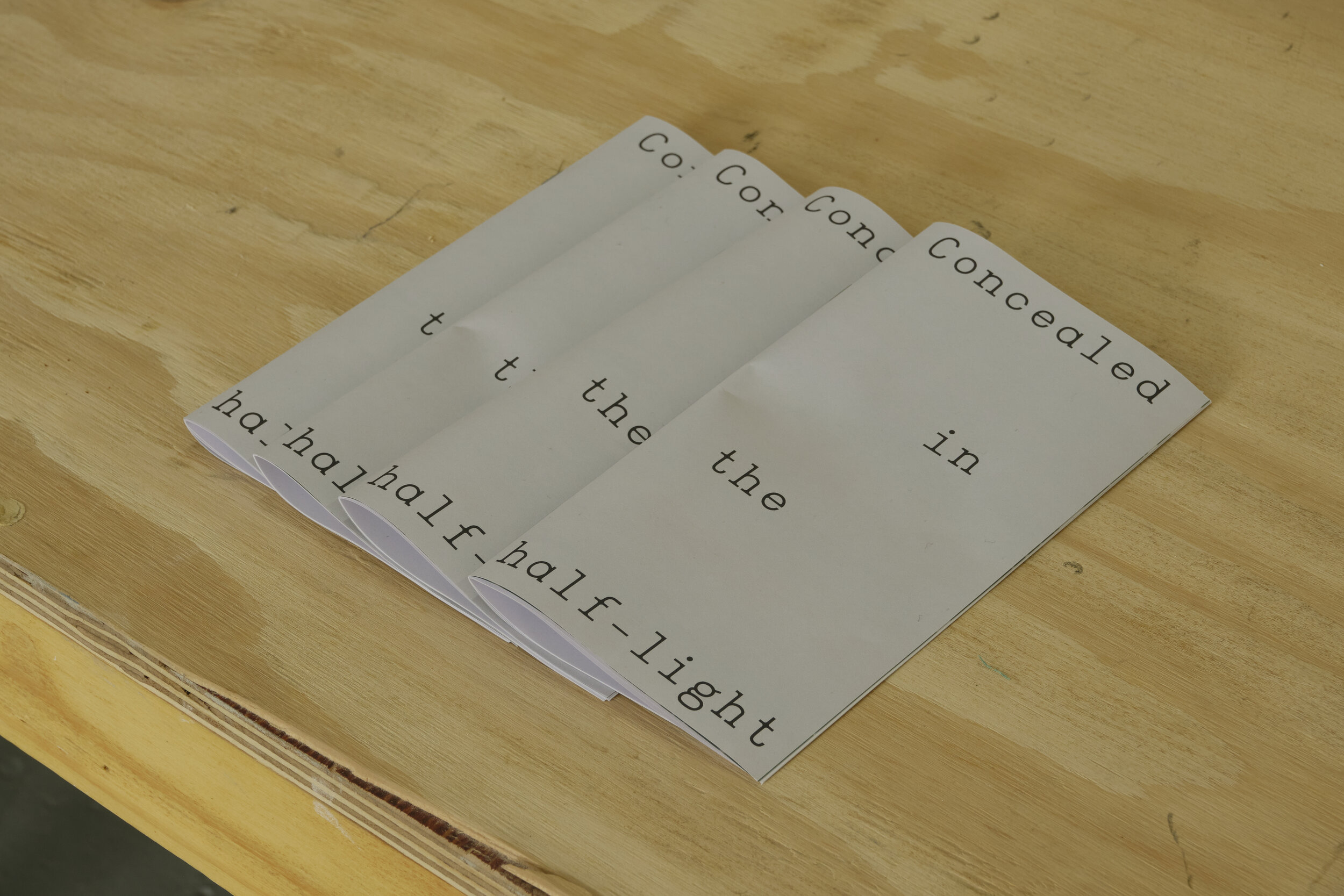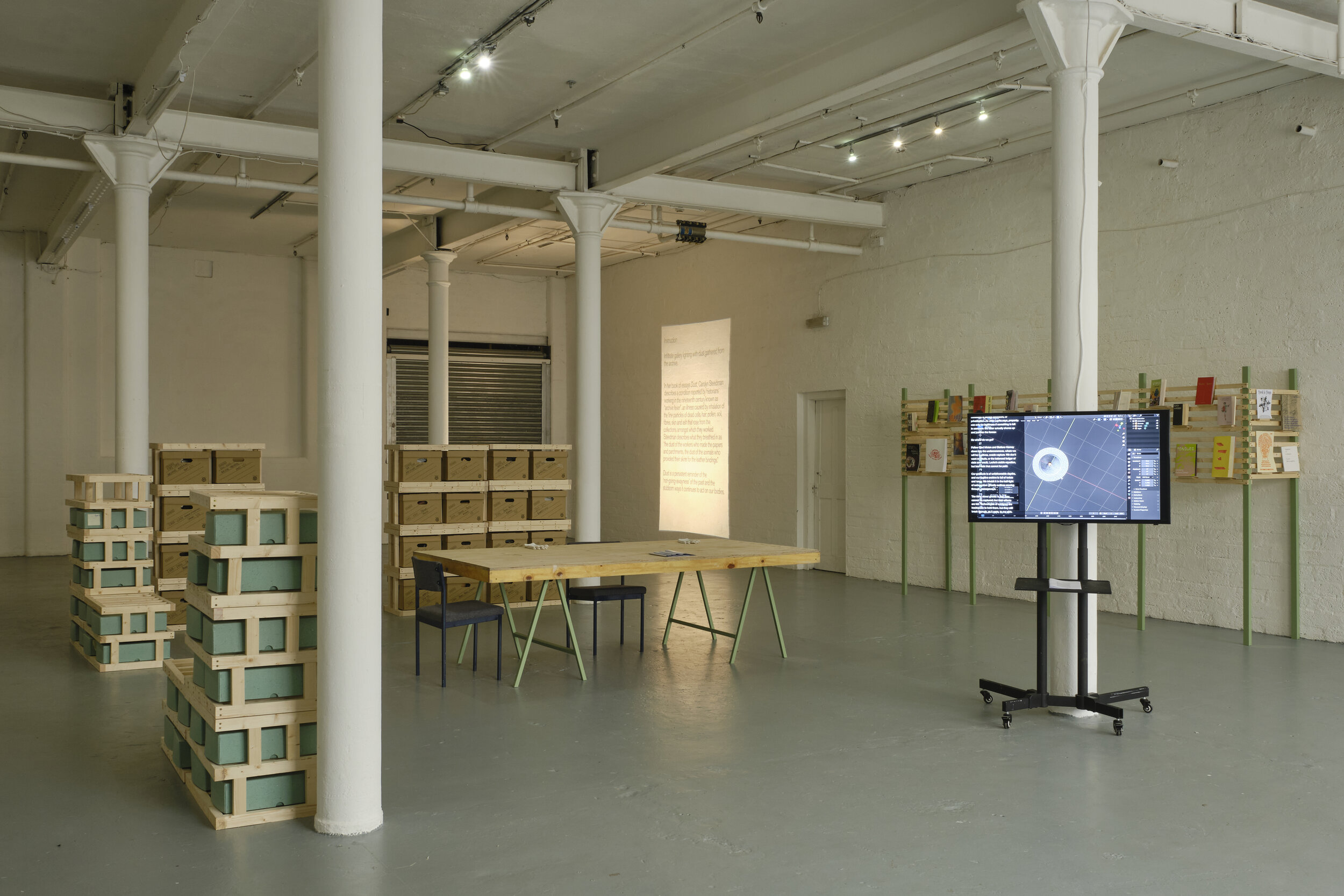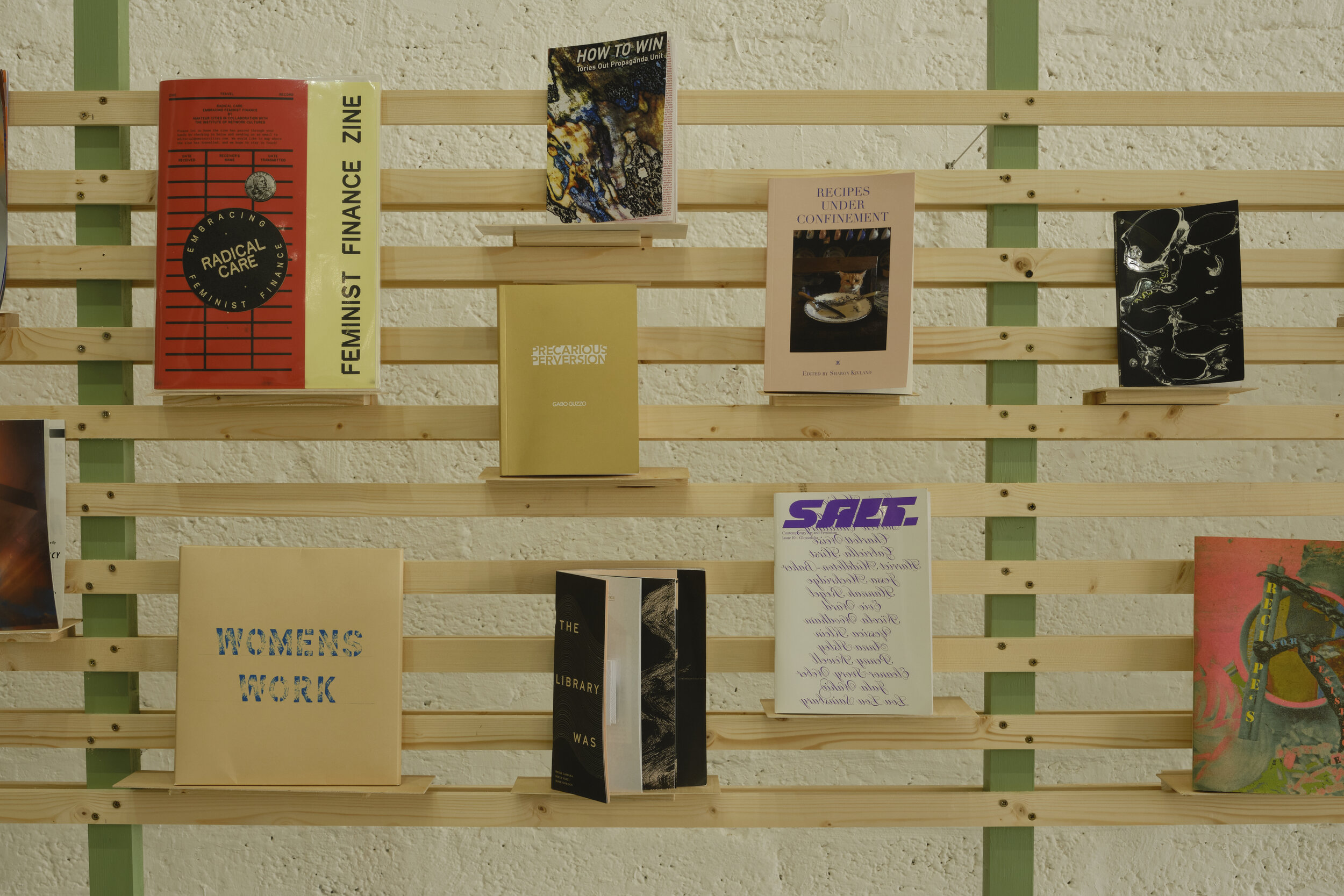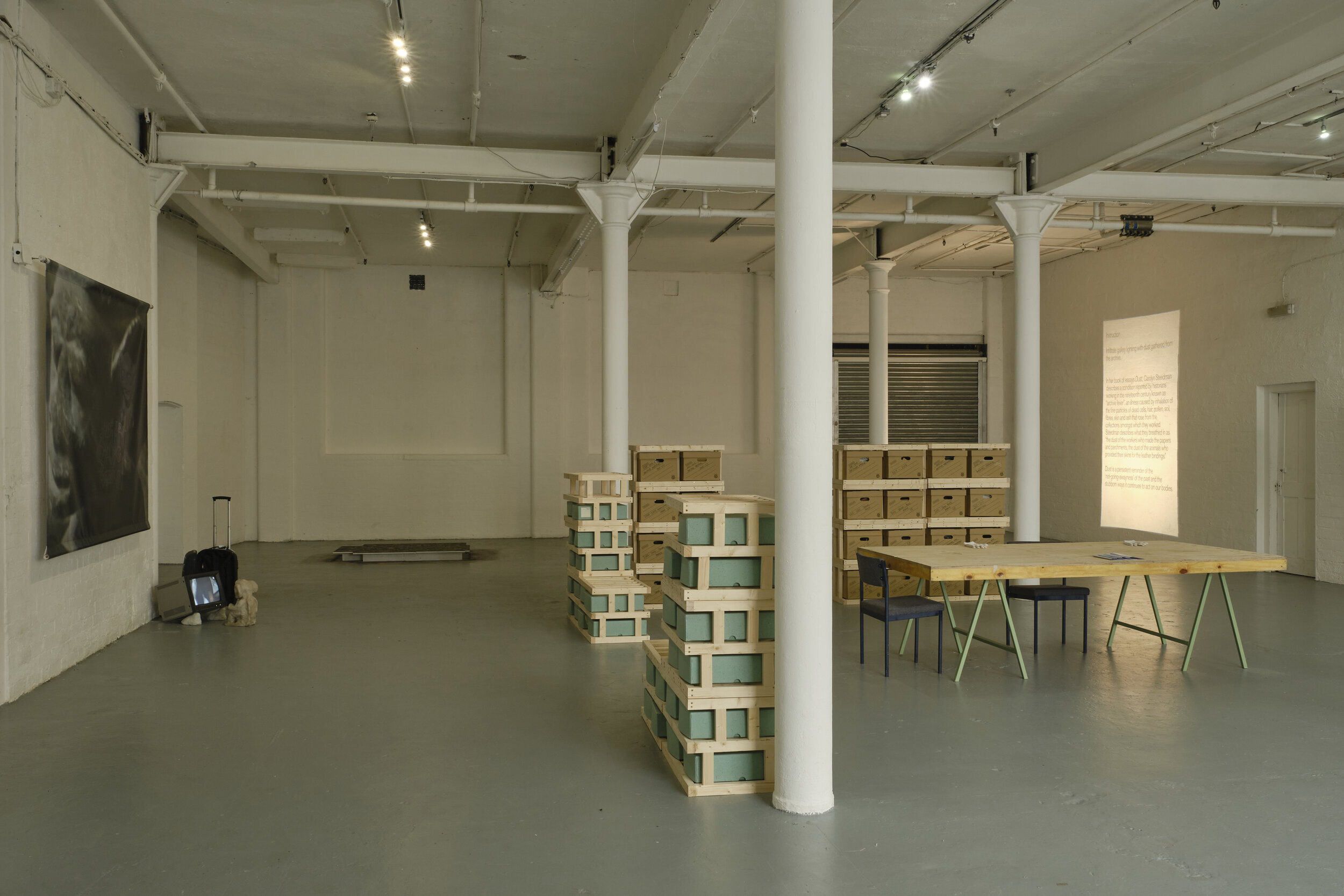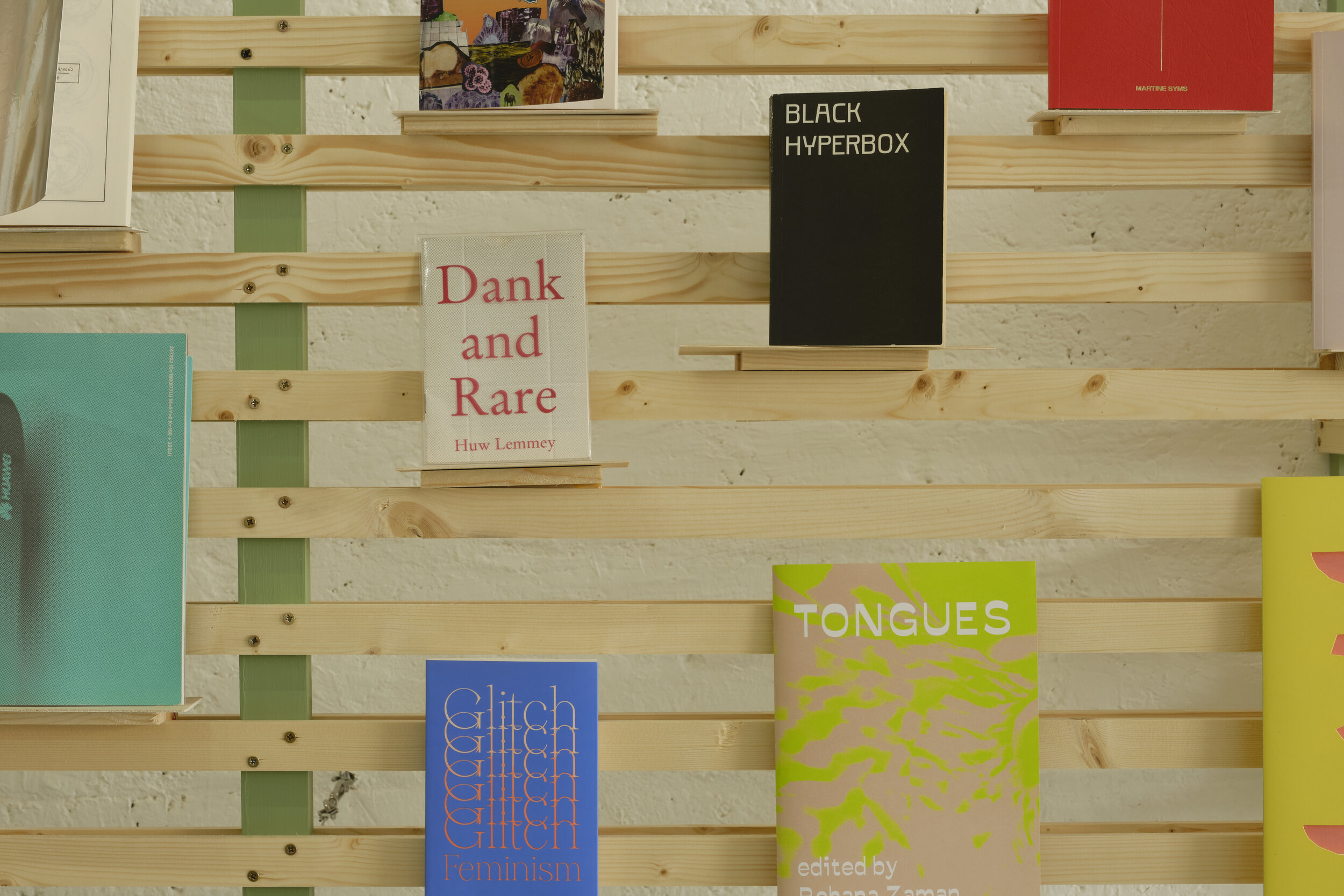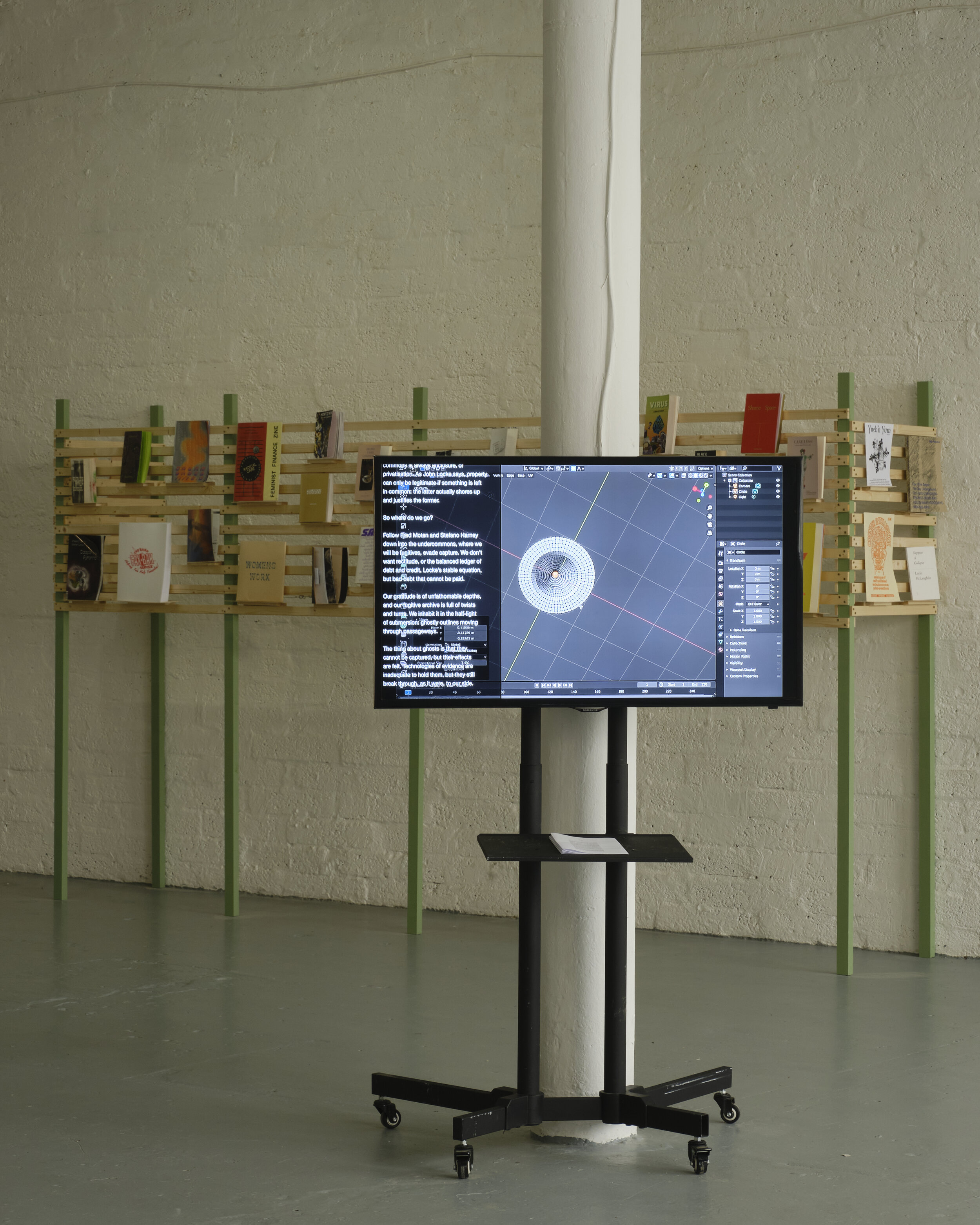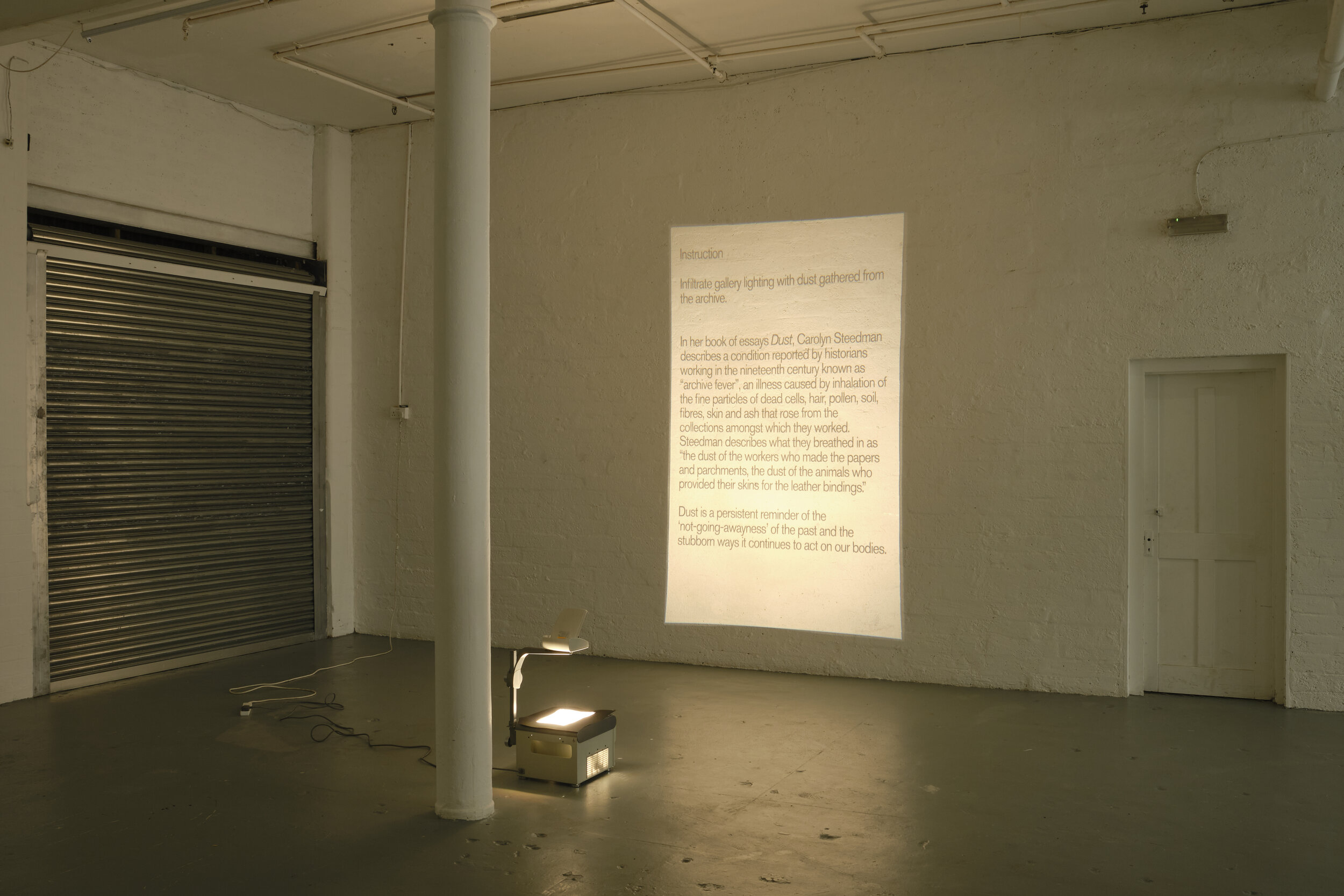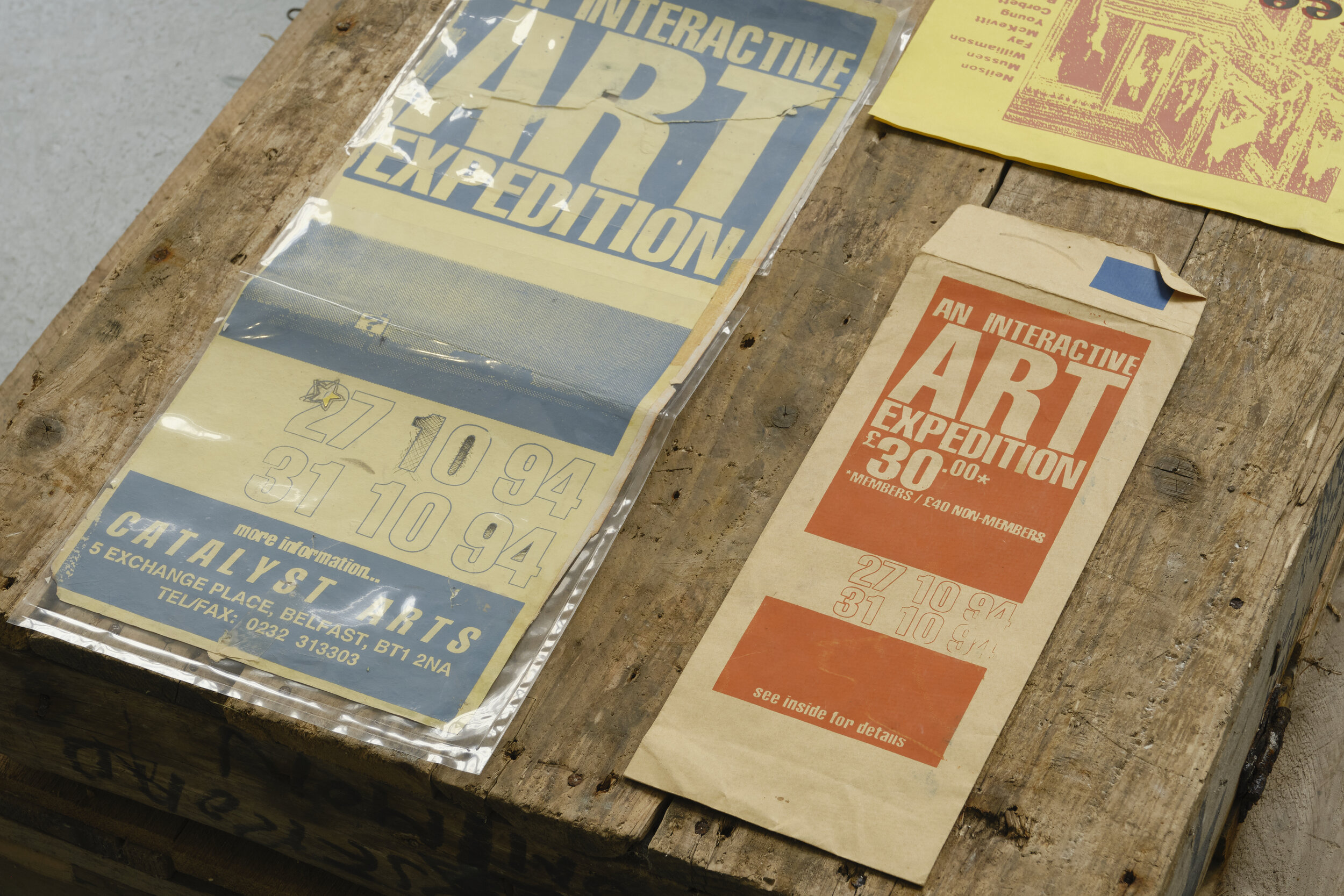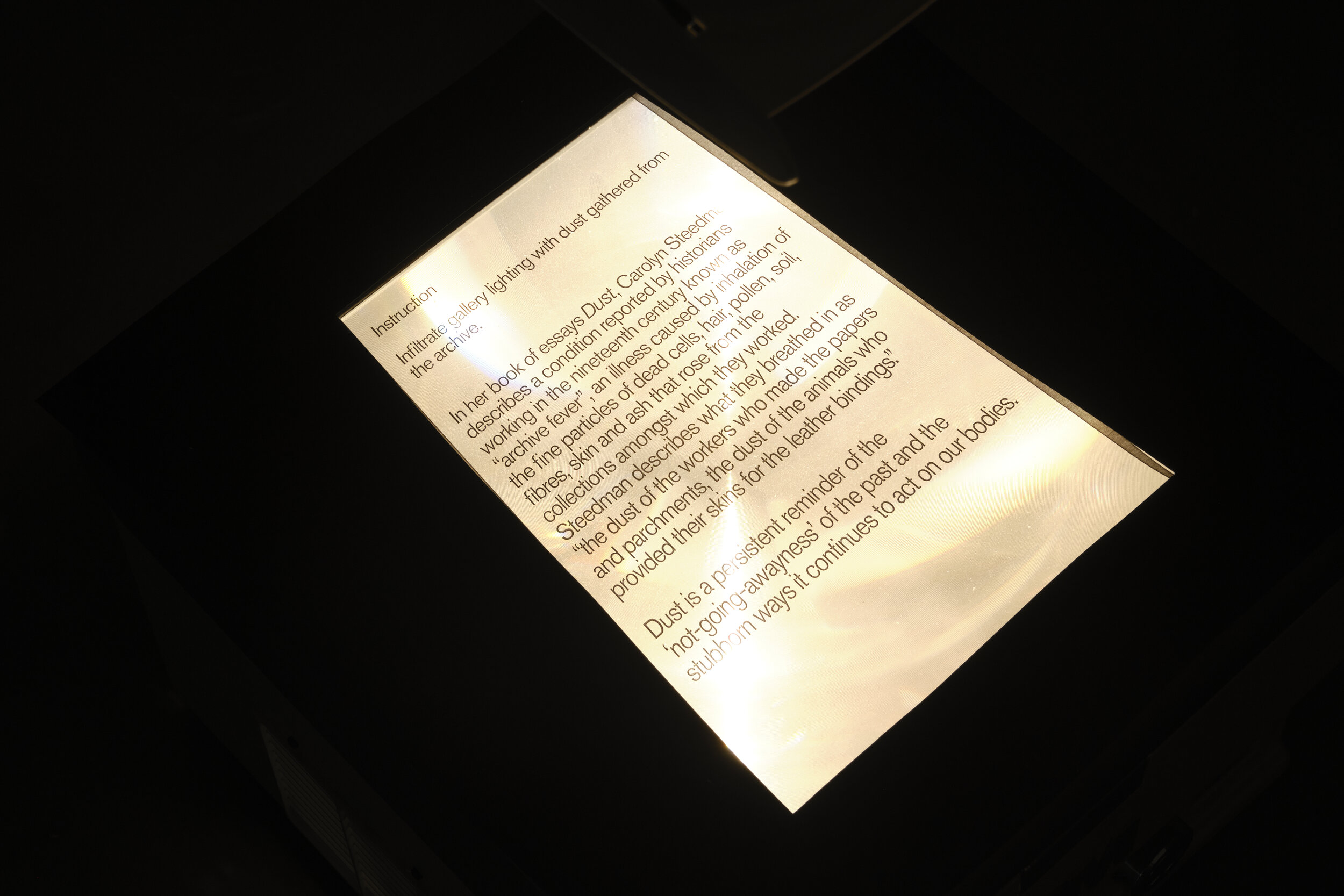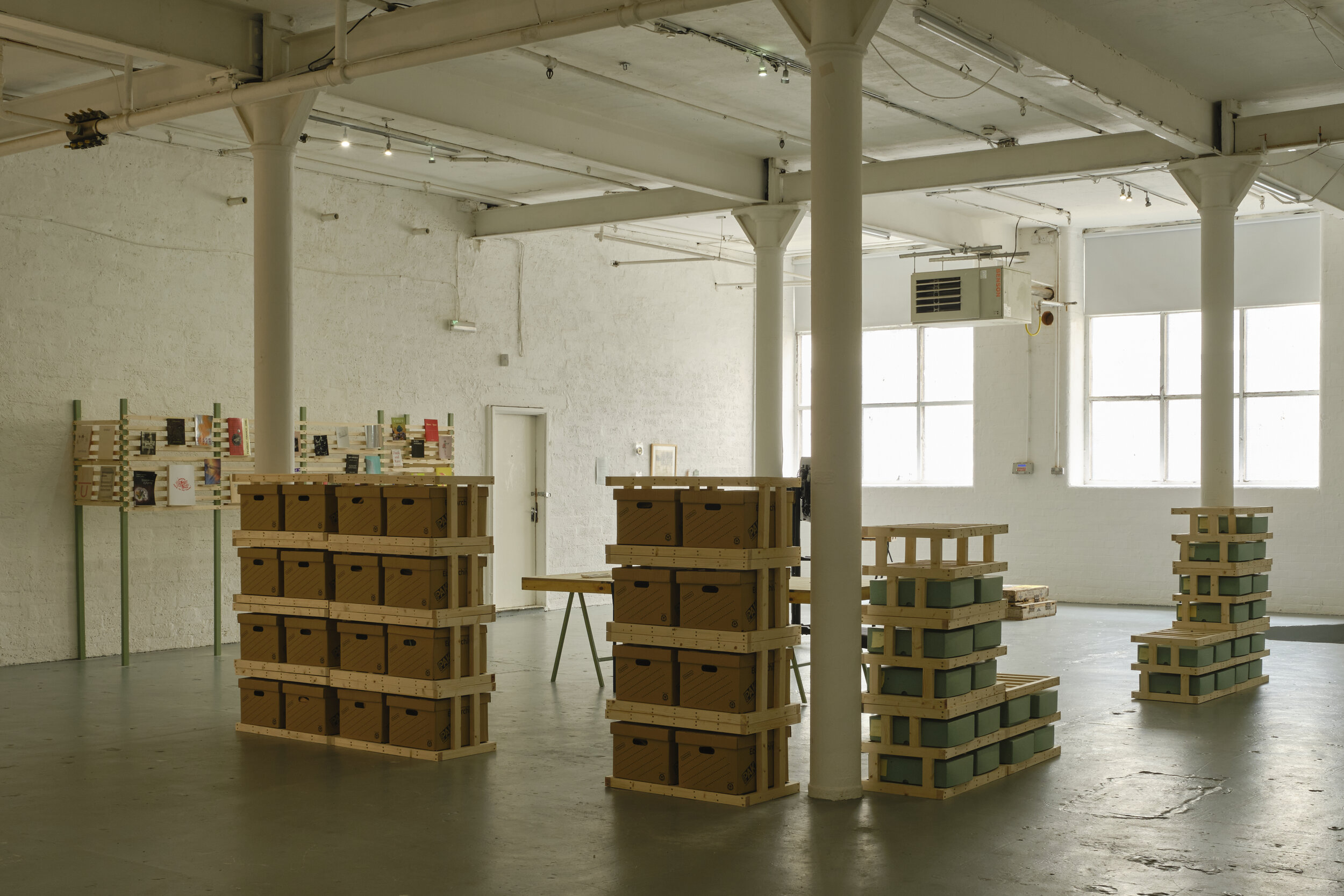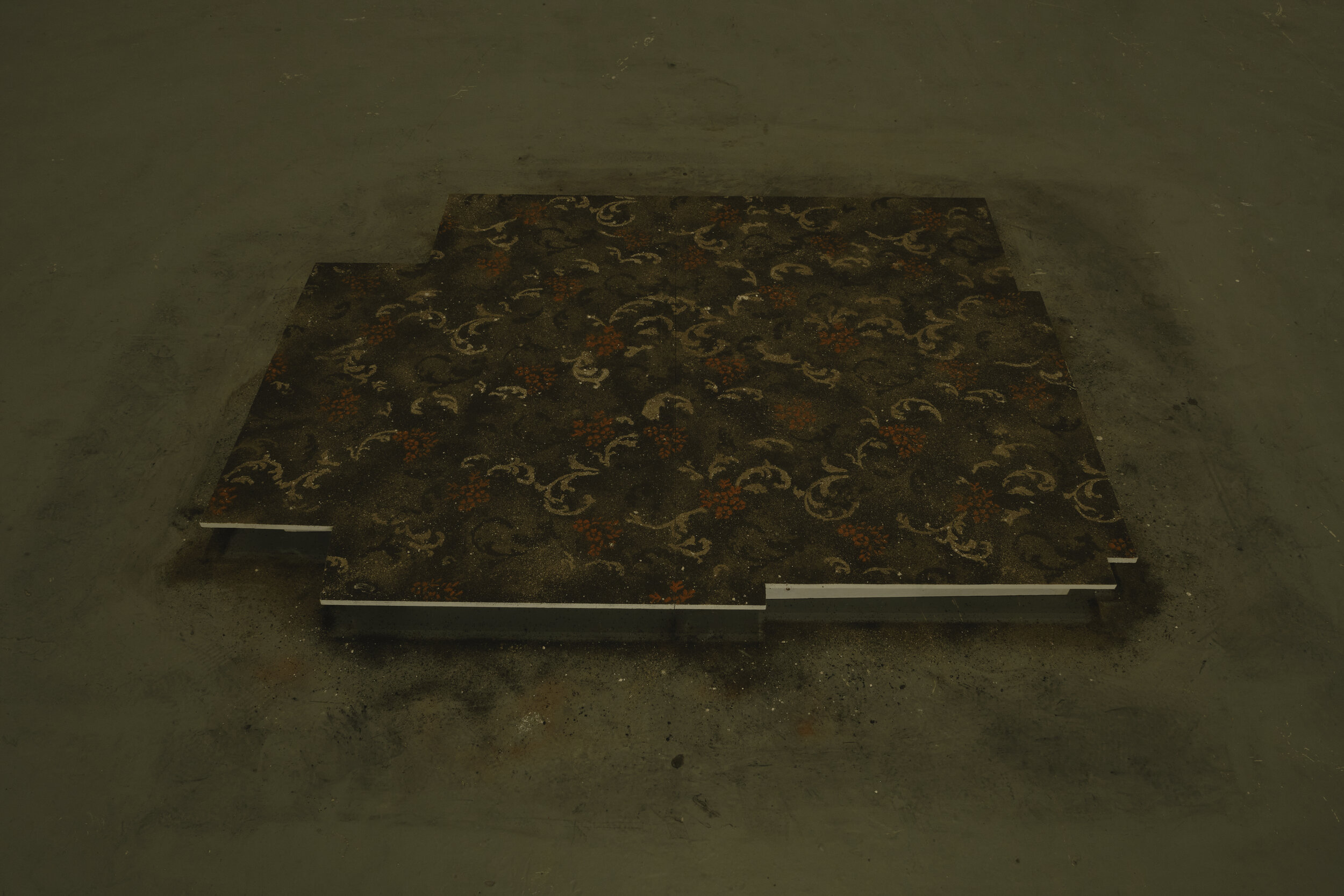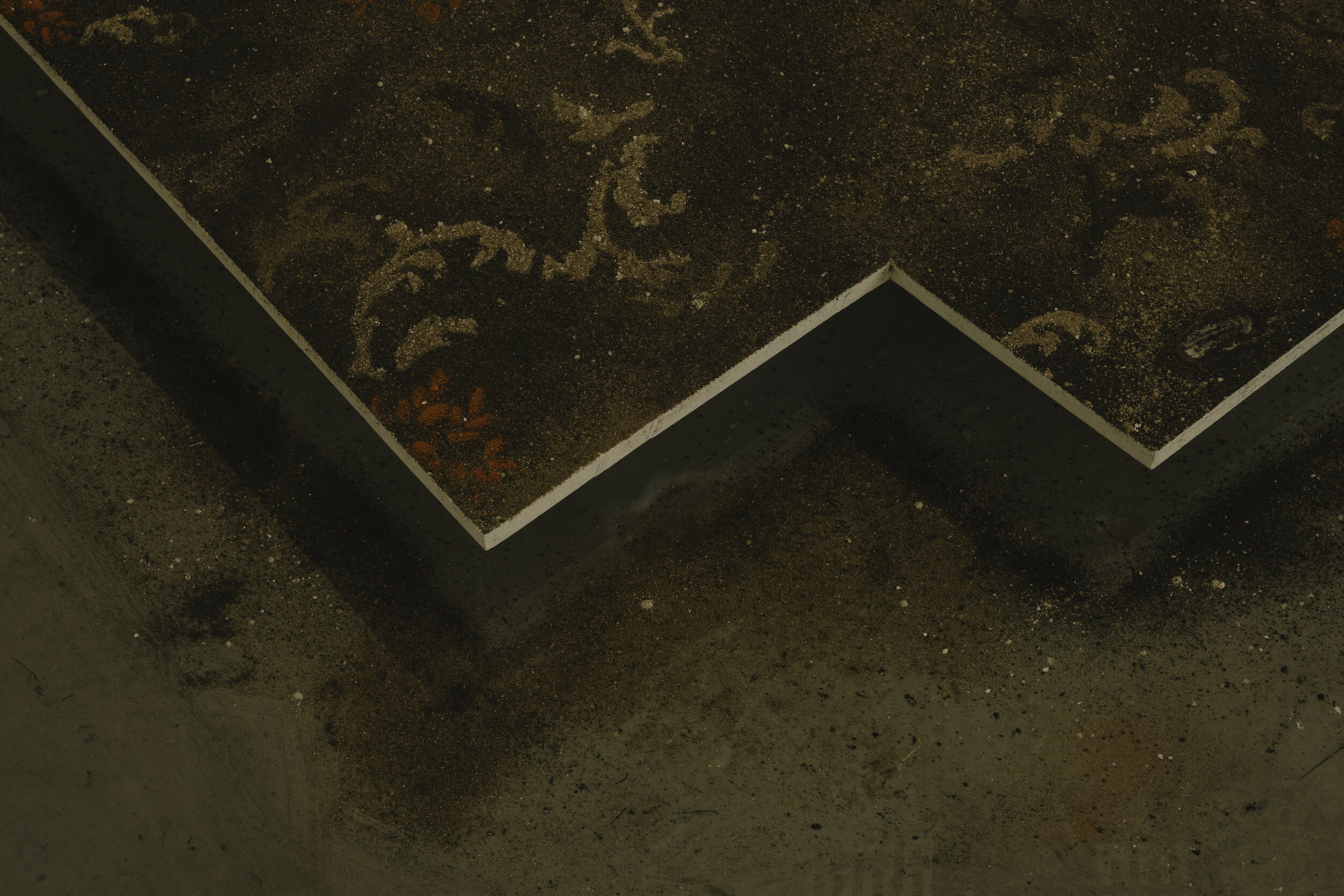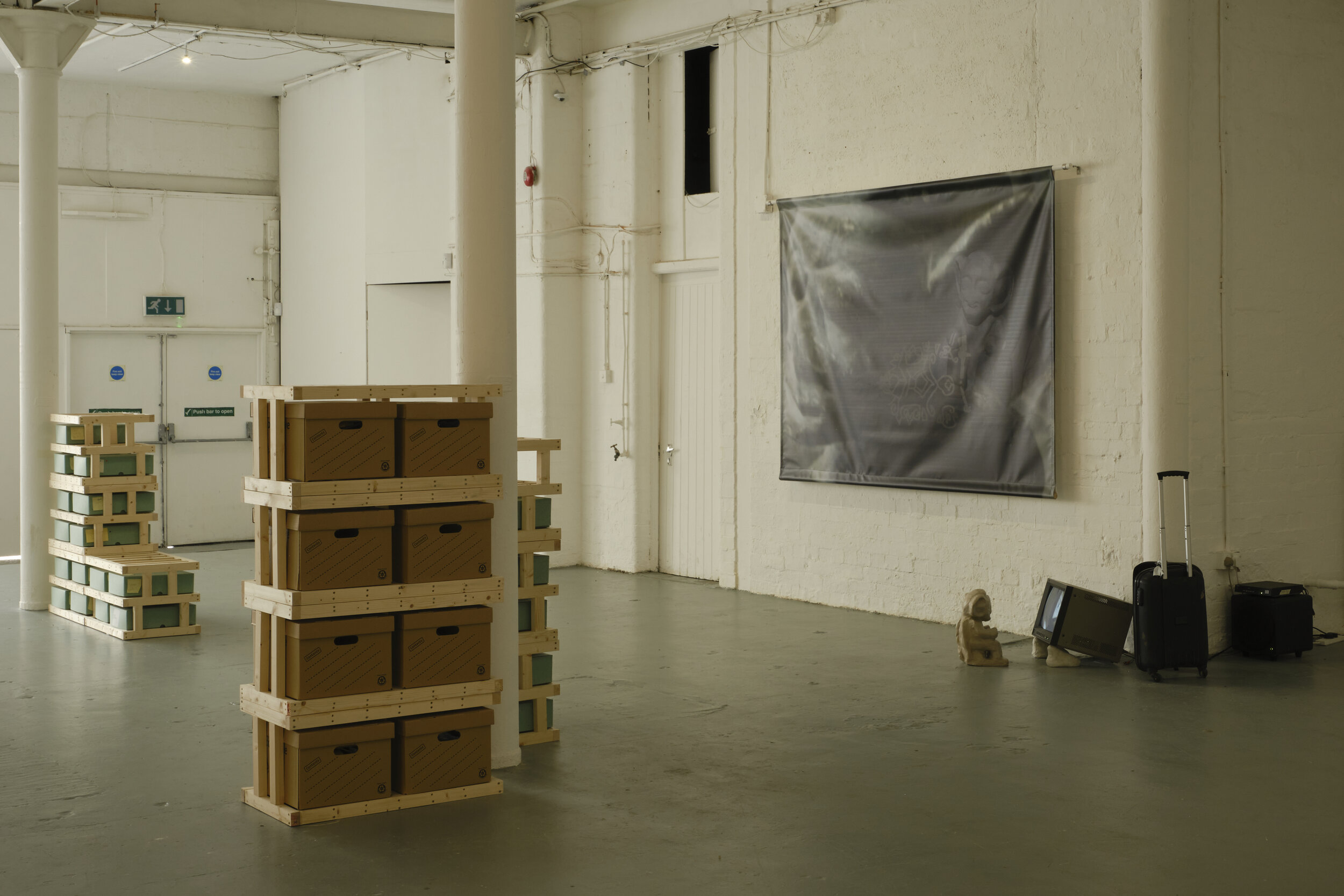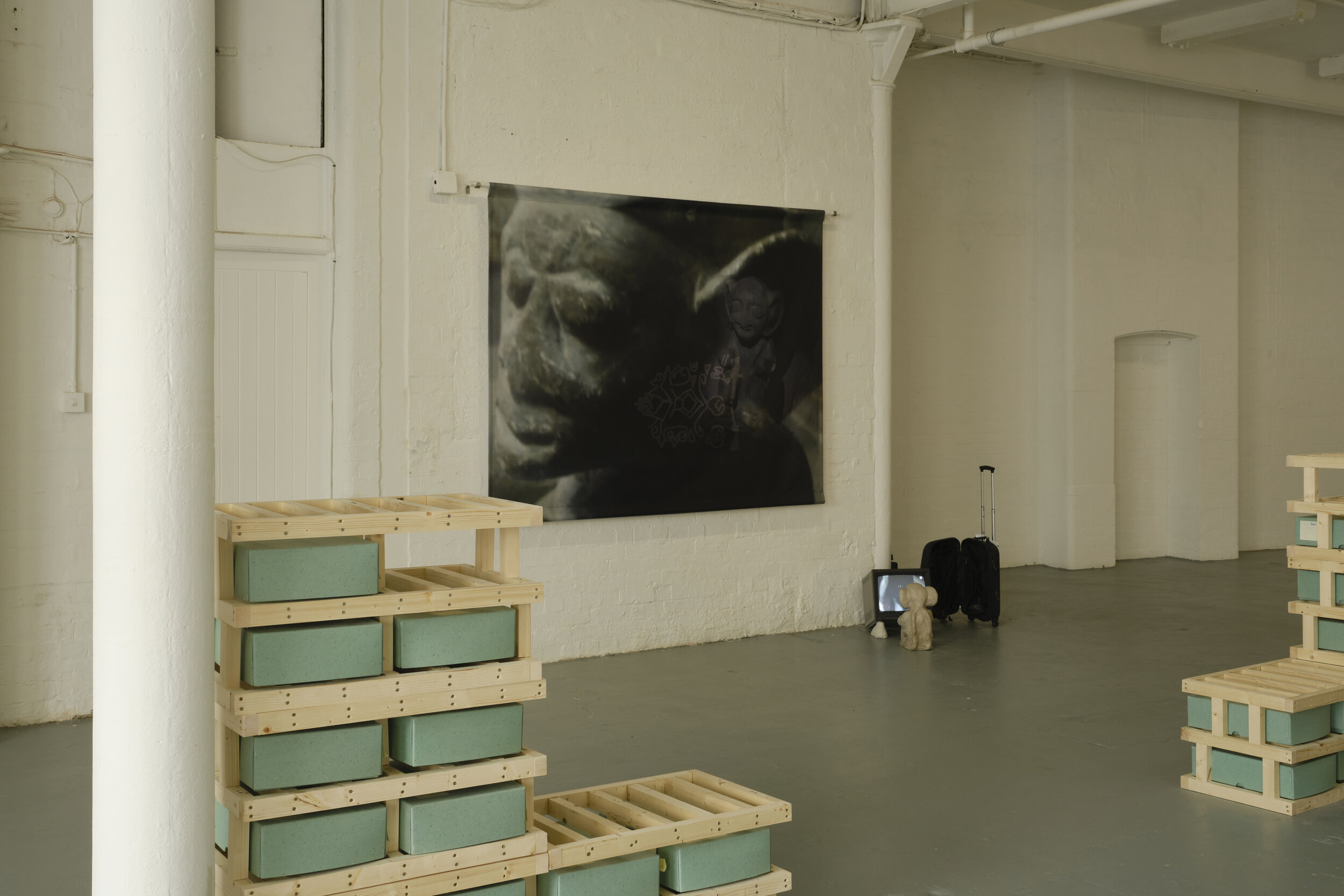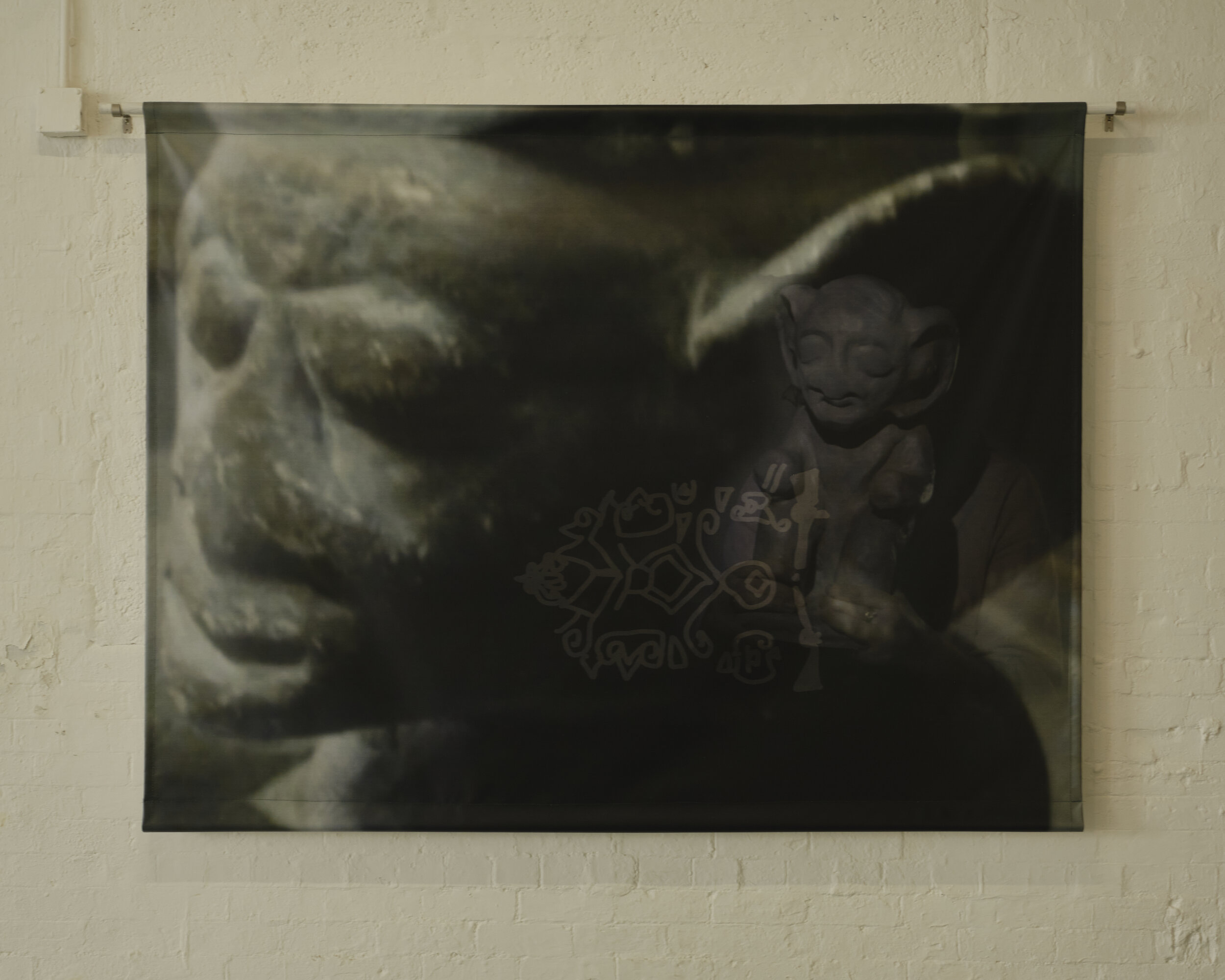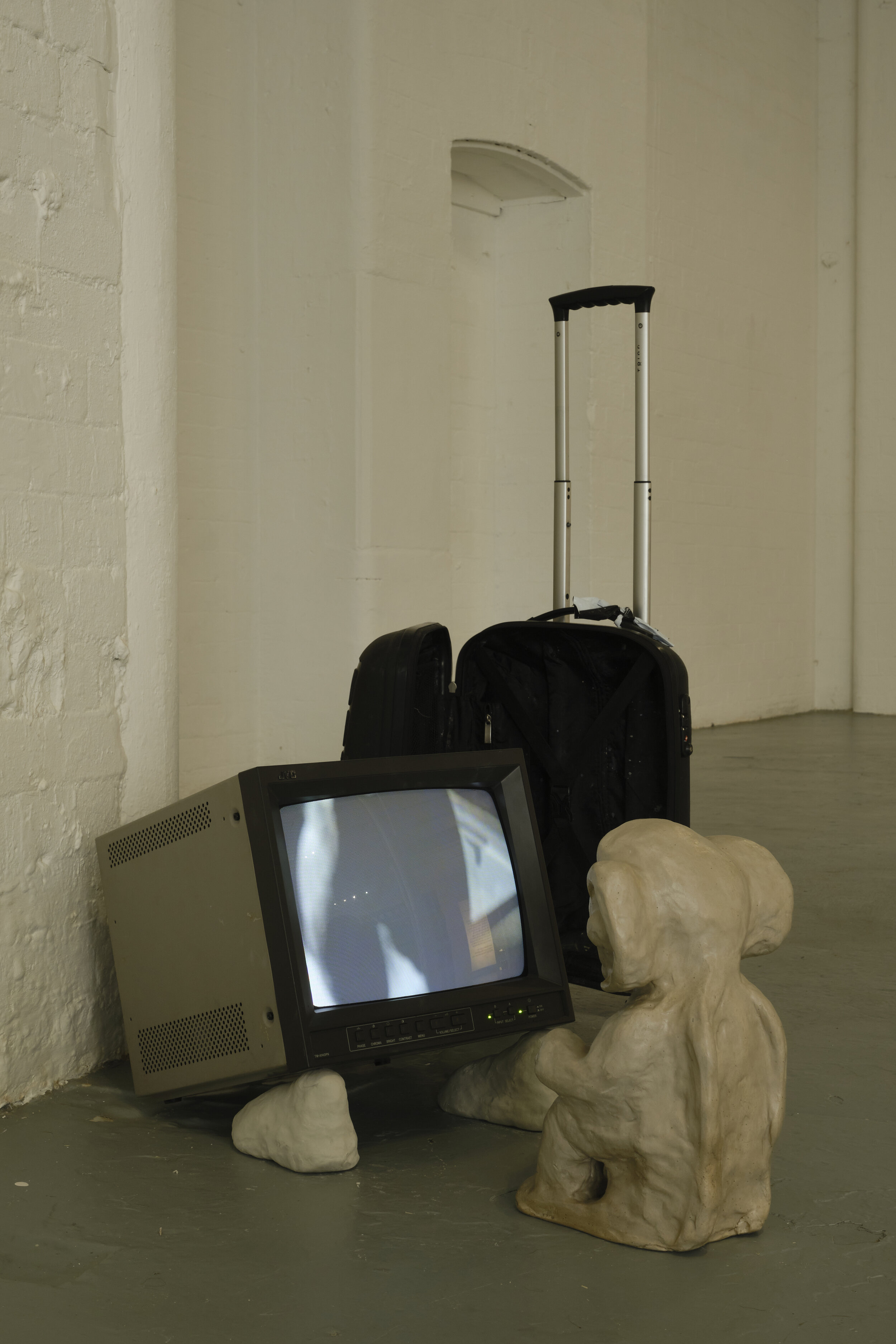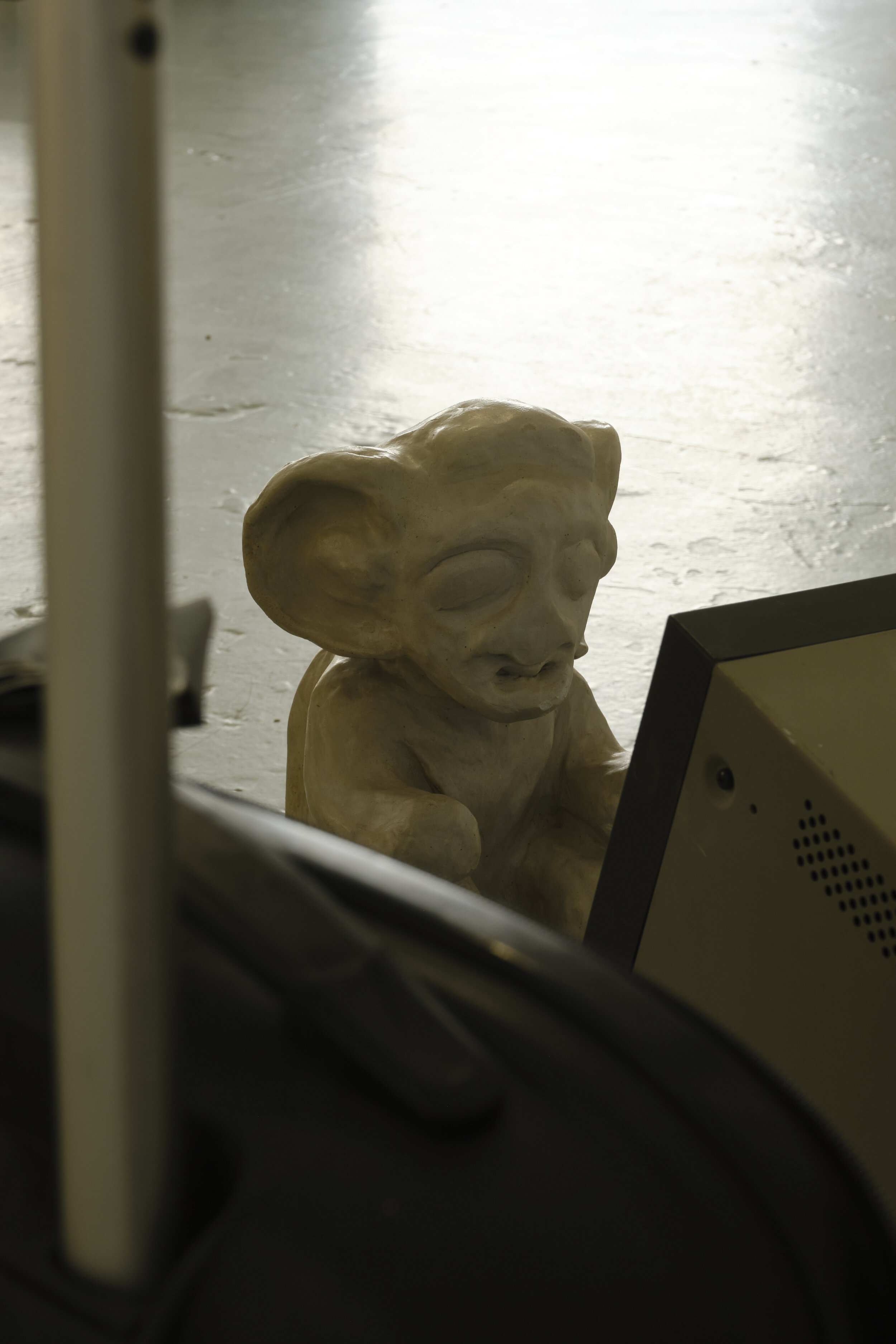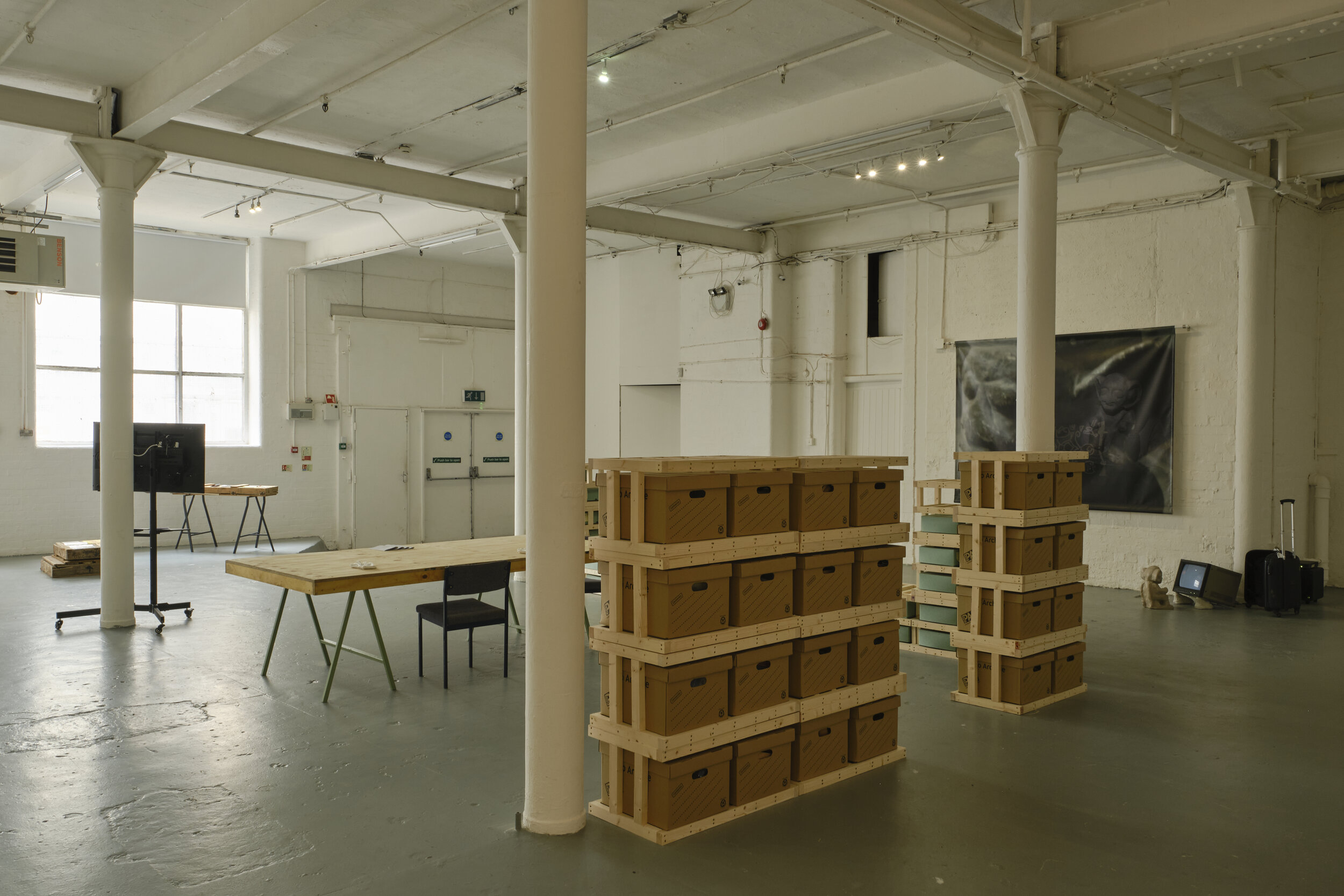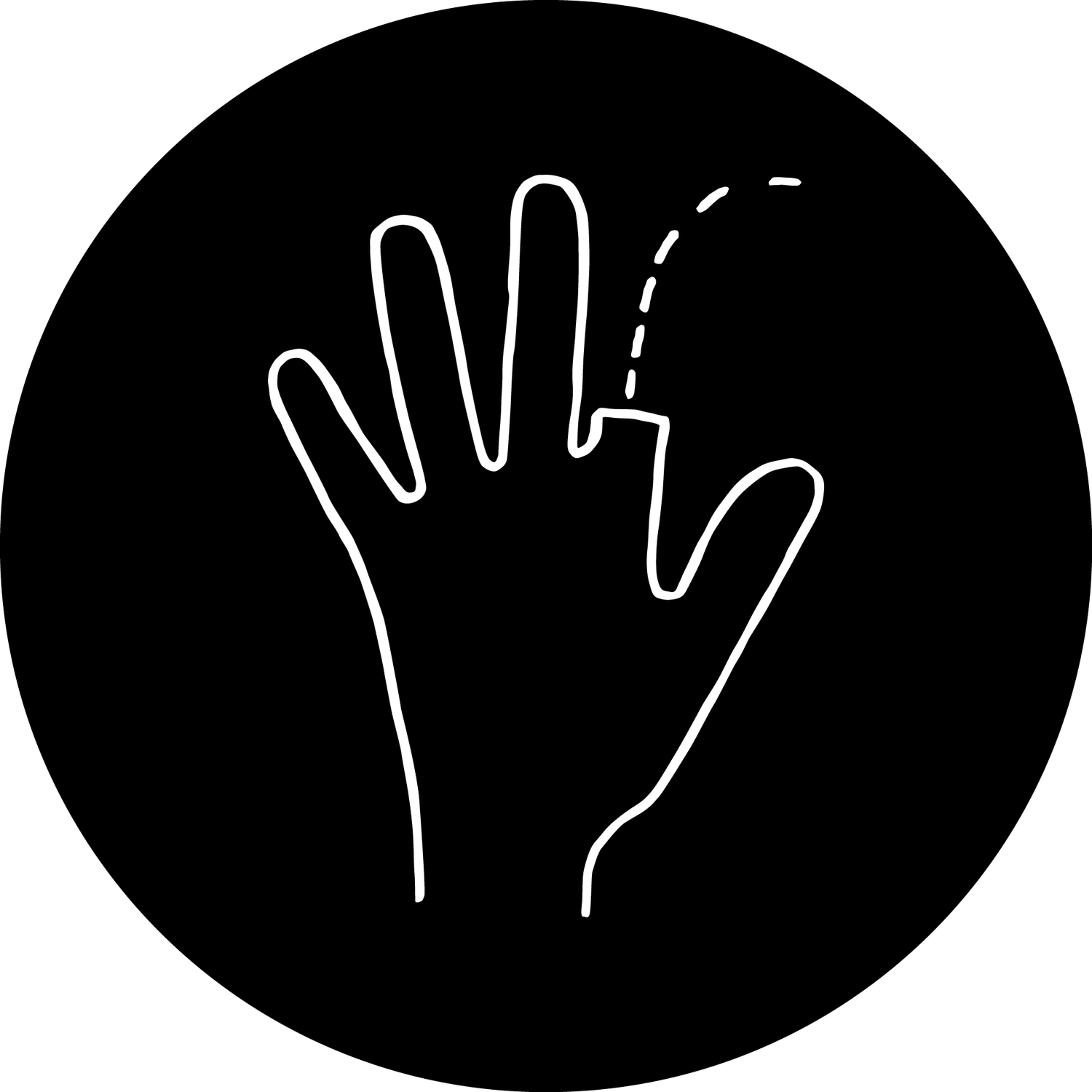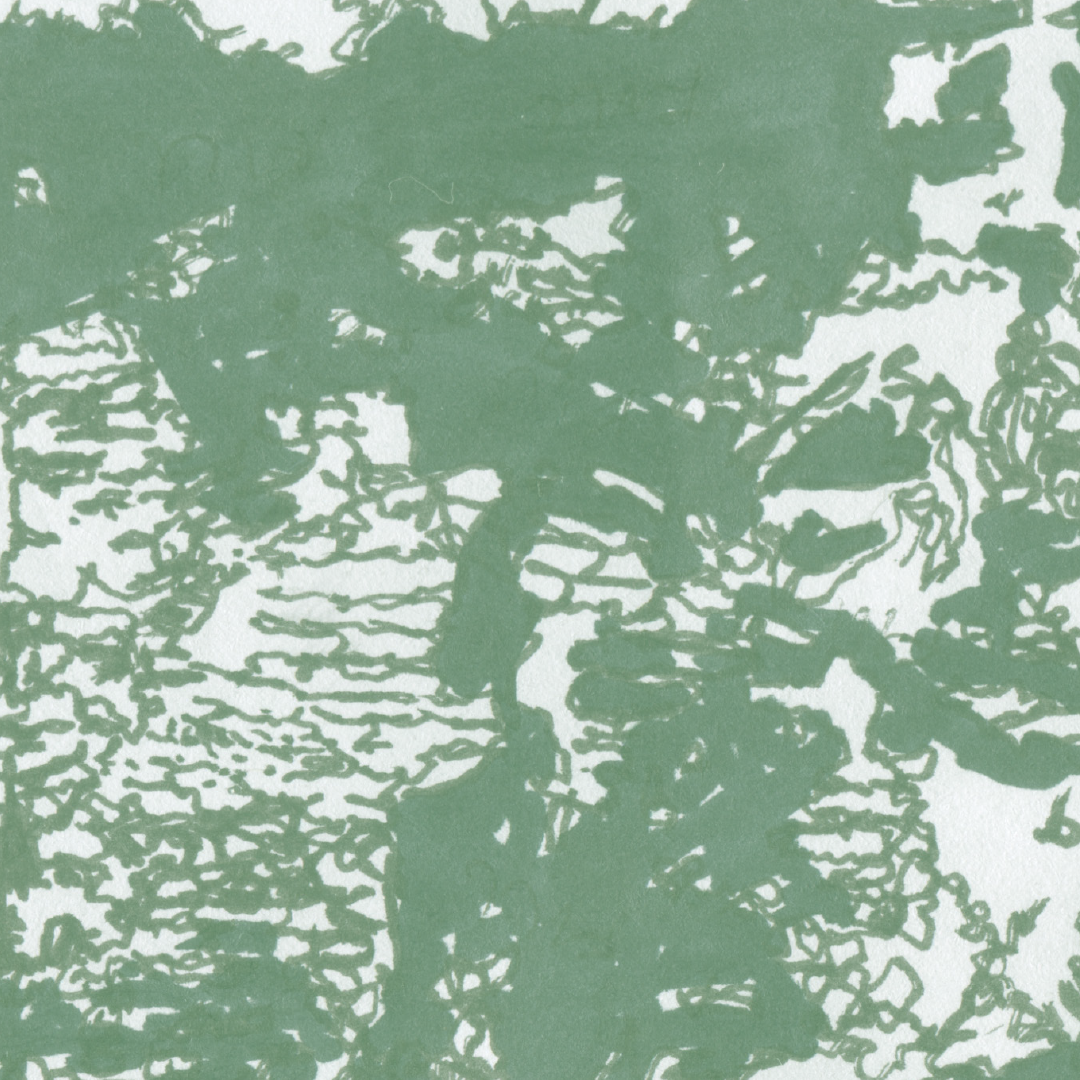Concealed in the half-light
5 August - 2 September 2021
Catalyst Arts, Belfast
If, for whatever reason, you have stepped inside the Catalyst Arts office you will be familiar with its all consuming chaos. Archive boxes piled high, walls plastered with decades of postcards and letters, VHS tapes collecting dust – it is a haphazard gathering of stuff. A place where there is an unsaid need to keep three broken staplers and ten disused laptops; this may be symptomatic of irrational hoarding, or the necessary conservation of an artist-led organisation. Its collection has grown from a fear of throwing out anything of archival worth, perpetuated by generations of directors warning “Don’t throw that out! It’s part of the Archive!” A suitcase lives undisturbed in a cardboard box, a human-sized pair of yellow scissors hang on the wall, to-do lists in chalk are suspended in time, a jar of pickled carrots sits on top of the CCTV screen and a bow, without a fiddle, is constantly being moved around the room. The context and the stories behind these items are lost, however they exist and live as collective memory, a sort of debris; a debris of remembering.
Concealed in the half-light disrupts the idea of the archive as a collection of ‘inanimate fossils’, which even in its entirety is only an illusion of history and presents just traces of reality. By looking at the Catalyst Arts archive and its unruly nature, there is potential to challenge the politics and power dynamics of the traditional archive which rigidly depends on data organisation such as standardisation and categorisation. These are systems put in place to streamline the varied and eradicate difference, which ultimately erases the value of difference. So when there are multiple histories and no agreed narratives, there is a possibility to offer archive alternatives, by acknowledging the subjective, intimate and personal, essentially the ‘unarchivable’.
This is an exhibition of many voices with invited artists Alice Rekab, artist-in-residence Nollaig Molloy, Matthew Wilson, the Department of Ultimology, the Digital Archive of Artists’ Publishing (DAAP) with Frances Whorrall-Campbell, Banner Repeater and the Artist-Led Archive.
Public Online Programme
Tuesday 10 August & Wednesday 11 August, 6.00pm - 8.00pm: Digital Archive of Artists’ Publishing Workshop.
Wednesday 18 August, 6.30pm: Discussion with Daniel Jewesbury and artist collective Brown&Brí, with the Artist-Led Archive and Durty Books. Book via Eventbrite.
Thursday 26 August, 6.30pm: On Death Reading Group with the Department of Ultimology. Book via Eventbrite.
ARTISTS
Alice Rekab
Alice Rekab's practice is concerned with expressions and iterations of complex cultural and personal narratives. Alice takes their own mixed-race Irish identity as a starting point from which to explore experiences of race, place and belonging. Over the last ten years Alice’s practice has centred around collaboration and interdisciplinary work from which they produce film, performance, image and sculpture, creating new intersectional narratives and objects for exhibition.
Projects include Family Lines, The Douglas Hyde Gallery (2022); Ricochet #14, Museum Villa Stuck, Munich (2021); Two External Light Sources At The Same Time, Atrium, Temple Bar Gallery + Studios (2019); The Nomoli/Father talk, Very—project space, Berlin (2019); and The Open Object, Stanley Picker Gallery, London (2018). Alice is a recipient of the Visual Arts Bursary Award 2020 and the Visual Arts Project Award 2021.
Artist-Led Archive
The Artist-Led Archive is an artist-led initiative started in 2006 by artist/curator Megs Morley as an attempt to intervene into a perceived and pressing lack, or ‘gap’, in collective knowledge, about the contexts, histories and developments of artist-led culture in Ireland. As an archival project, the Artist-Led Archive seeks to investigate, activate and inform artist-led culture in Ireland by collecting and presenting examples of works and documents from artists, organisations, groups, and collectives working in Ireland (North and South) from the 1970s to the present day.
Currently housed in the Special Collections of the National Visual Arts Library, Dublin (NIVAL), The Artist-Led Archive has been exhibited in the Irish Museum of Modern Art (2015), Limerick City Gallery (2016), The Lab, Dublin (2009), Catalyst Arts (2008), and Galway Arts Centre (2007), as well as featuring in many publications, talks and discussions internationally.
Currently the ALA is being updated and is open for new submissions from artist-led initiatives in Ireland (North and South) in advance of a major new publication by Durty Books in 2022, and supported by the Arts Council of Ireland, Visual Arts Project Award 2021.
DAAP
The Digital Archive of Artists’ Publishing (DAAP) is an interactive, user-driven, searchable database of artists’ books and publications, that acts as a hub to engage with others, built by artists, publishers, and a community of producers in contemporary artists’ publishing, and developed via an ethically driven design process.
A collaborative project, with the support of Wikimedia UK, it is inspired by the site of Banner Repeater’s public Archive of Artists’ Publishing on Hackney Downs train station, with 11,000 people passing a day, in response to the need for a similarly dynamic approach to archiving in an online context.
We have drawn upon the working knowledge of users and archivists alike, to develop a database with sufficient complexity, whilst remaining searchable and affording multiple histories to develop. DAAP is committed to challenging the politics of traditional archives that come from issues regarding inclusion and accessibility, from a post-colonial, critical gender and LGBTQI perspective.
Frances Whorrall-Campbell
Frances Whorrall-Campbell is an artist, writer, and archivist. Their critical writing has appeared in magazines such as Art Monthly and Art-Agenda, and their creative work has been published in anthologies by Pilot Press and Ugly Duckling Presse. They are the guest editor and curator of ‘Conversations Across Place’, a writers’ and artists’ workshop promoting queer and decolonial approaches to landscape. In 2020 Frances was a resident on Wysing Art Centre's AMPlify programme, and they are currently a Research Associate at the Centre for Contemporary Art Derry~Londonderry.
Matthew Wilson
Matthew Wilson is an artist living and working in Northern Ireland. A recent graduate of Belfast School of Art, he has previously been included in group exhibitions both locally and internationally. In 2019, he was granted a scholarship to attend the New York Academy of Art Summer Residency. He has worked on a number of commissioned projects, both with institutions such as Ulster University and Queen's University and within the local community. Following his graduation, he was appointed Artist in Residence for Fine Art Sculpture/Lens at the Belfast School of Art for the 2020-2021 academic year.
Nollaig Molloy
Nollaig Molloy is a visual artist who explores materials from landscapes and sites looking at their
relevance to historical, social and industrial situations. Her past projects include: working with HIVE Choir, a Belfast-based improvisation vocal ensemble in 2021; creating a series of live radio broadcasts from a lake boat on a 53km long lake on the River Shannon in 2018; and exploring rock salt from 1500 metres underground in a working salt mine in 2020. Through modes of in-depth research and engagement with archives, environments and people, she works in video, animation and sculptural installation. Nollaig is interested in the idea of ‘material-to-hand’ casting connections between place, landscape, value of labour and handcrafted objects.
She graduated from Belfast College of Art in 2020, where she received a Masters of Fine Art. She is currently undertaking a development residency with Belfast Print Workshop and taking part in Grass Roots, the first year of Muine Bheag Arts in Muine Bheag, Co. Carlow.
The Department of Ultimology
The Department of Ultimology is a collaborative project by artist and researcher Fiona Hallinan and curator Kate Strain. Established in 2016, the Department considers endings, or that which is dead or dying as an entry point for transformative encounter. Ultimology responds to a contemporary environment of anxiety around endings; a time of apocalyptic climate events and turbulent political change, threats of resurgent populism, depleted resources, rapid obsolescence and technological changes that are shifting society. With satellite studios in Brussels, Cork, Graz and Wicklow, the Department of Ultimology is part of the Orthogonal Methods Group (OMG), a research group based at CONNECT - the Science Foundation Ireland Research Centre for Future Networks and Communications, headquartered at Trinity College Dublin.
This programme is supported by the Arts Council Northern Ireland and Art Fund.
Special thanks to fellow Catalyst Arts Directors Jen Alexander, Tara McGinn, Cecelia Graham, Manuela Moser, Kate Murphy and Dominic McKeown, as well as Nathan Alexander and Nathan Cahill for all their help and support.
